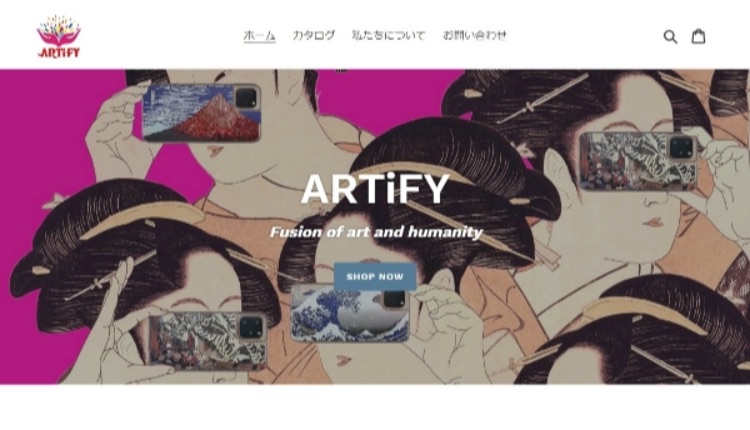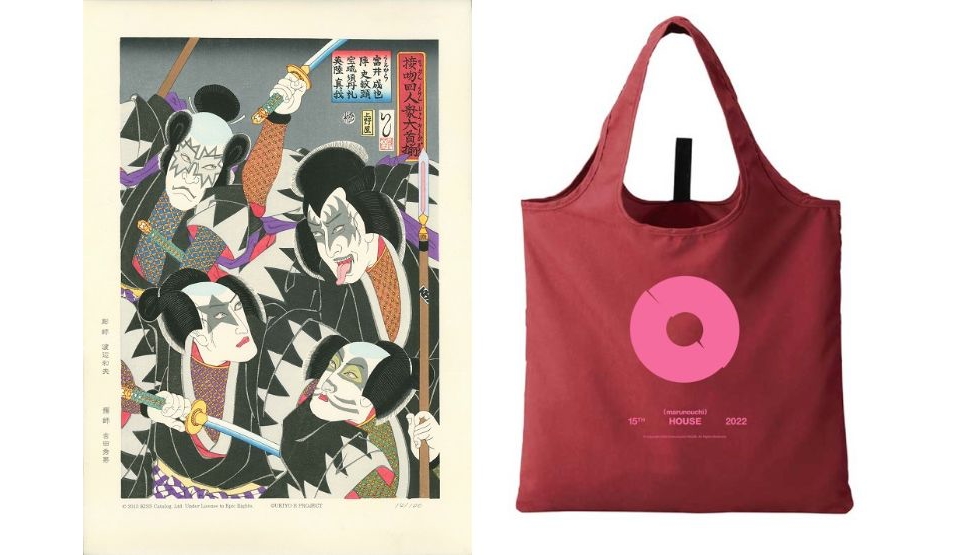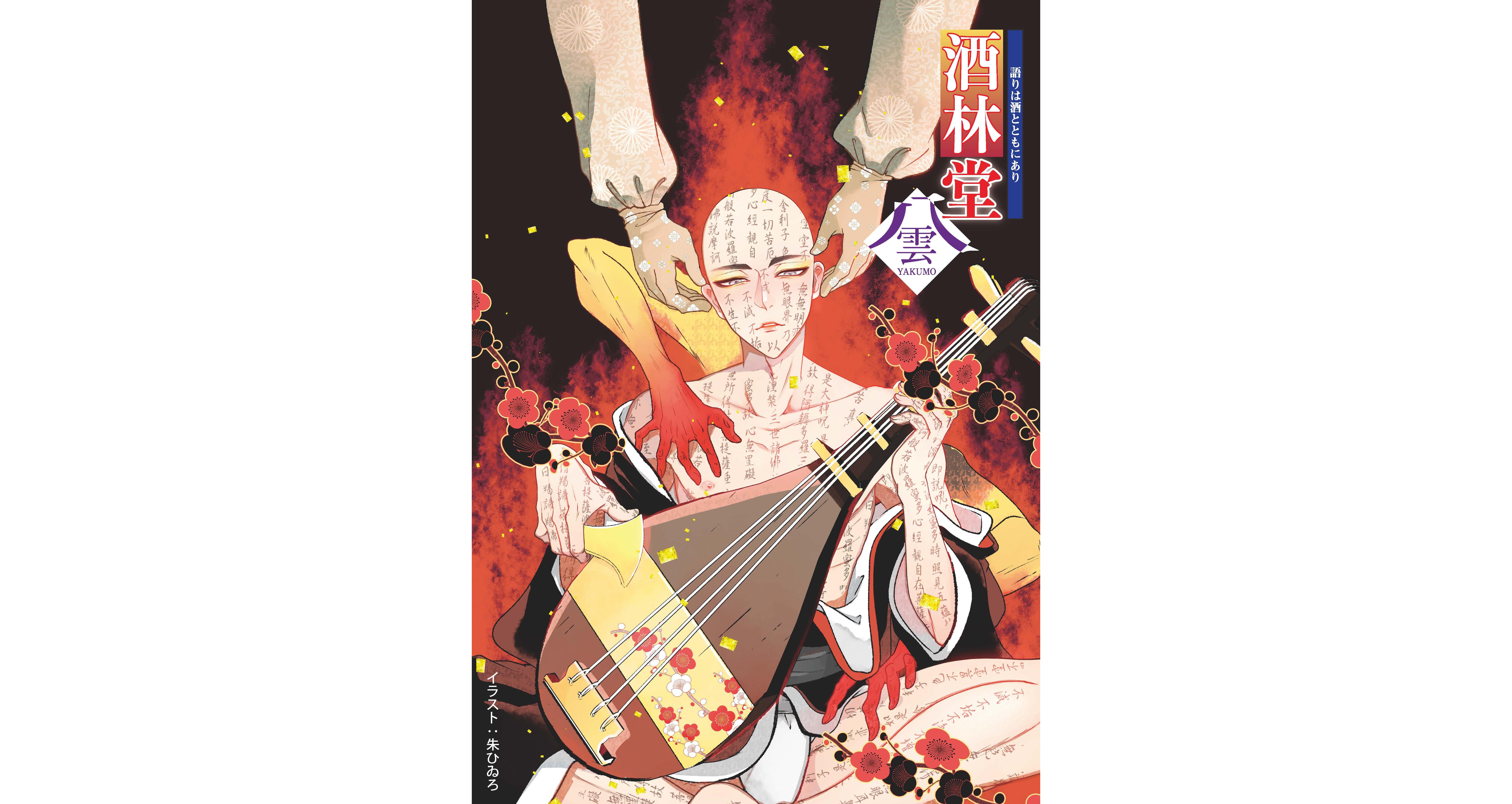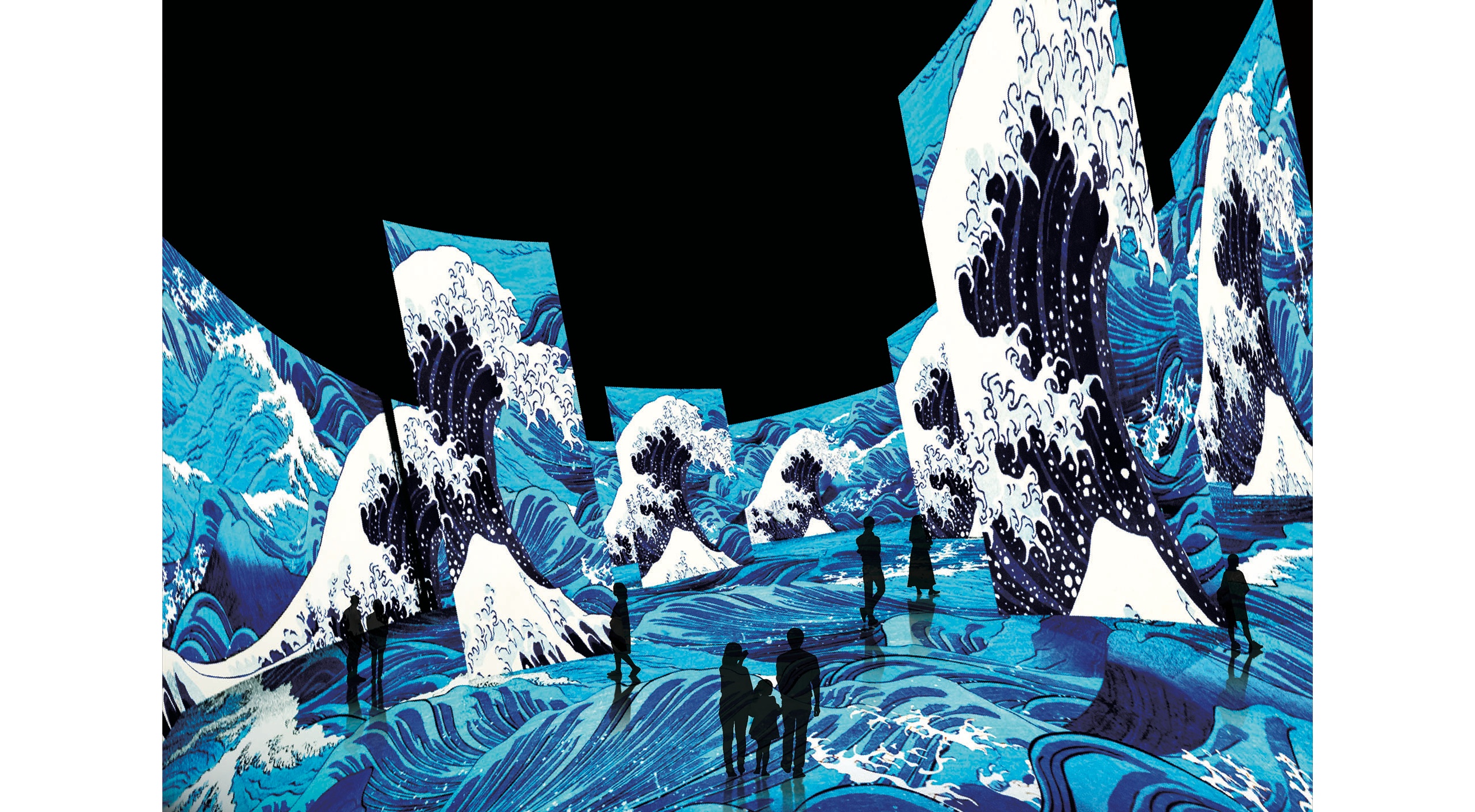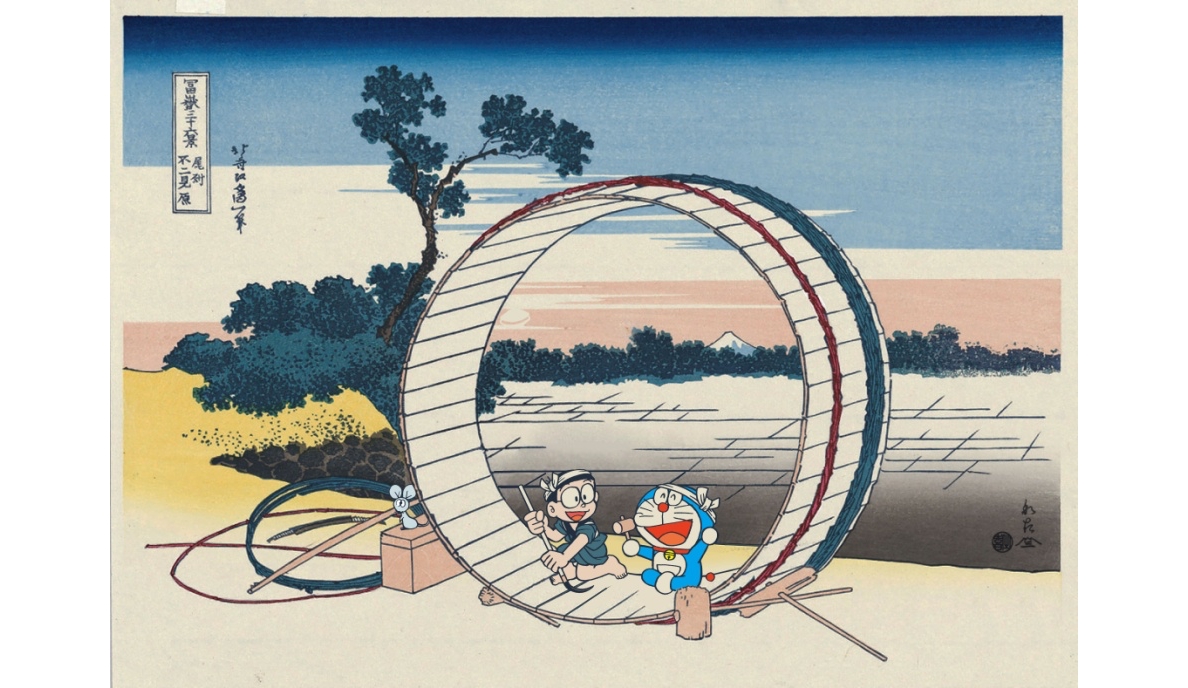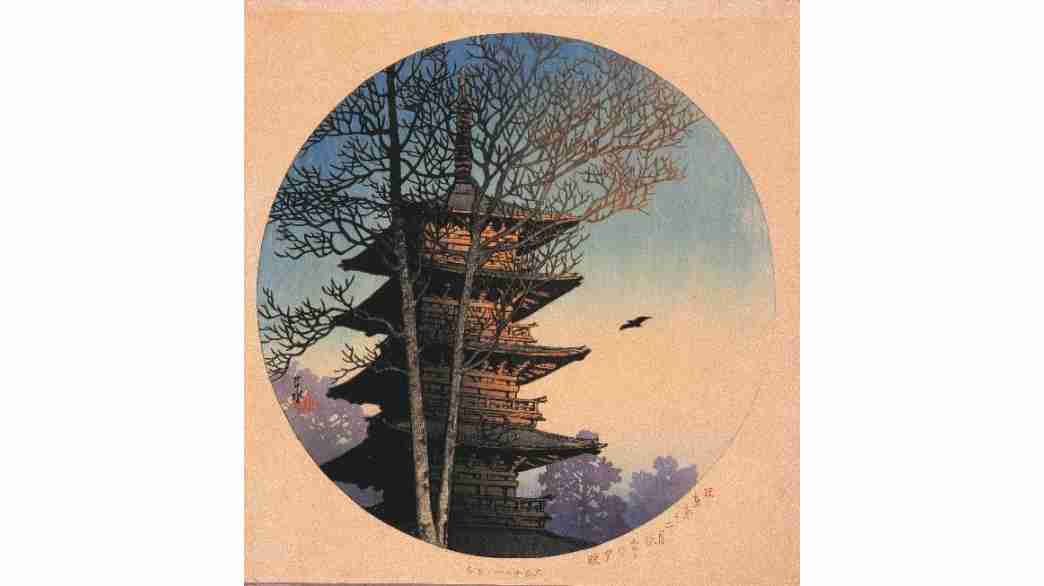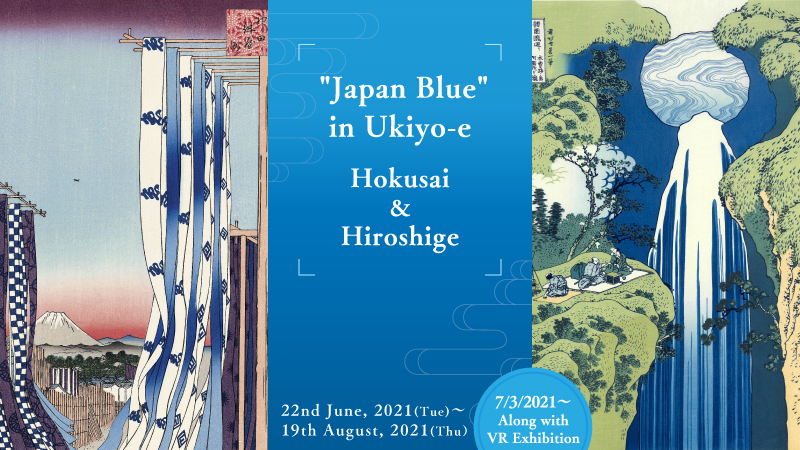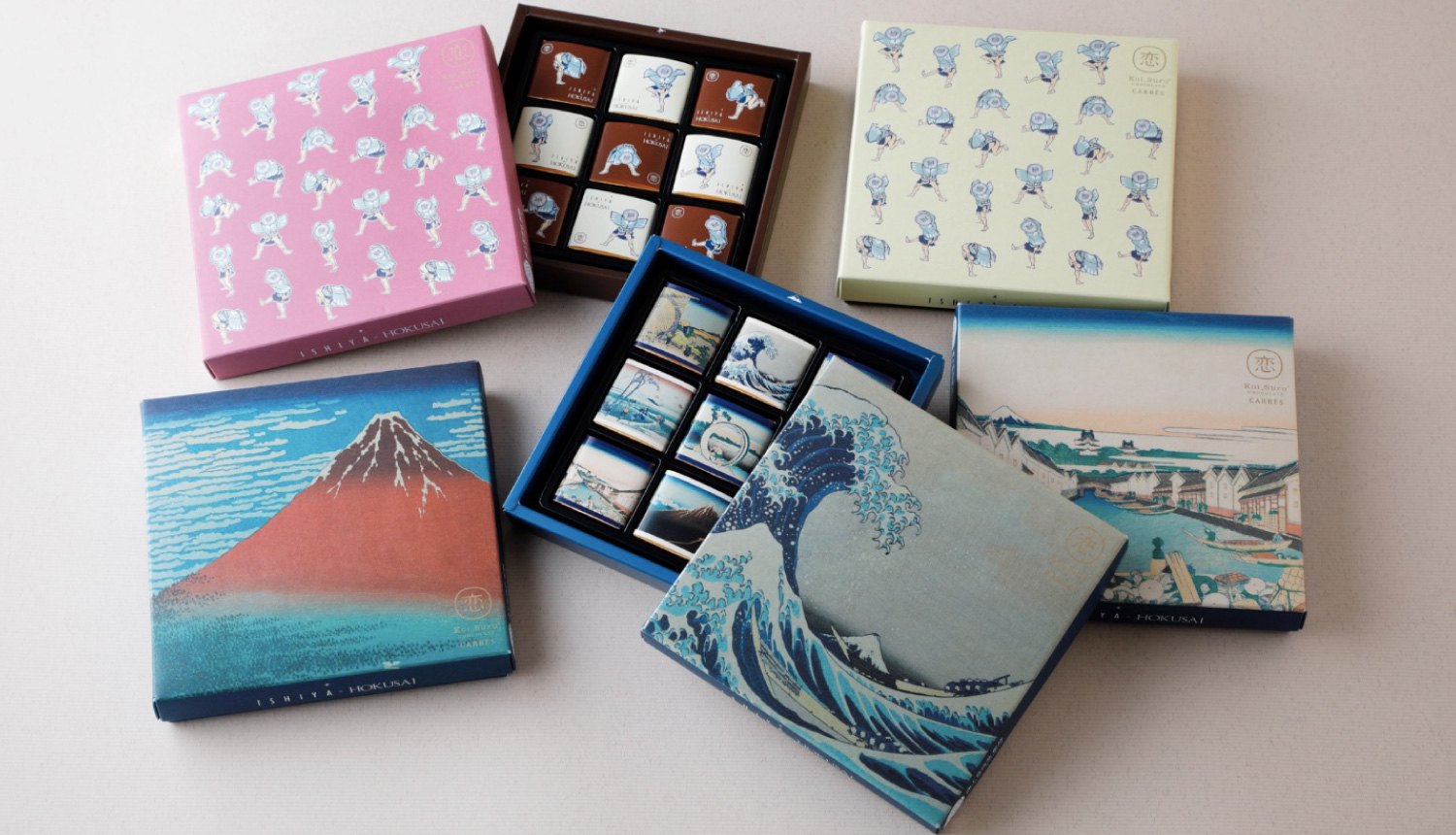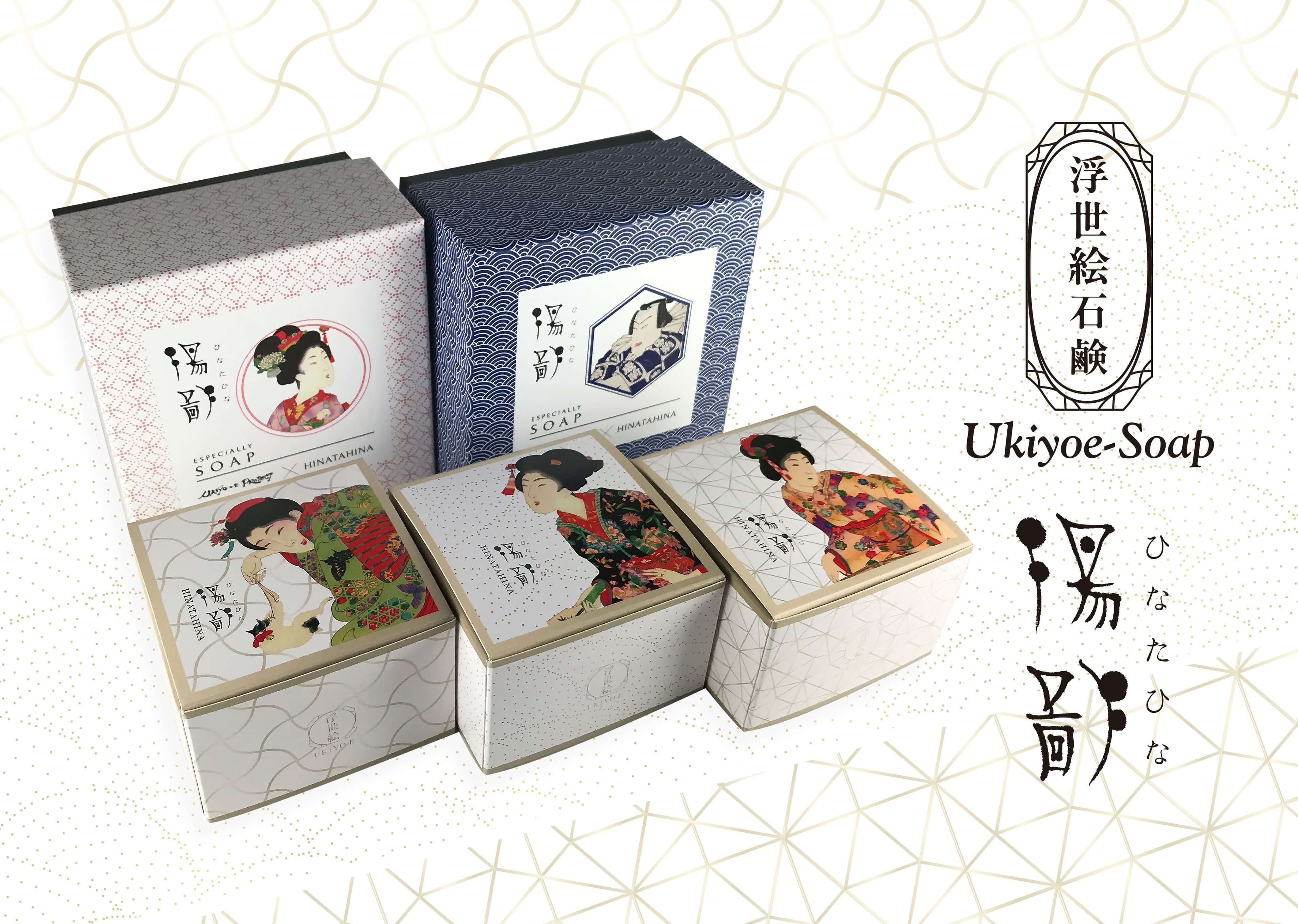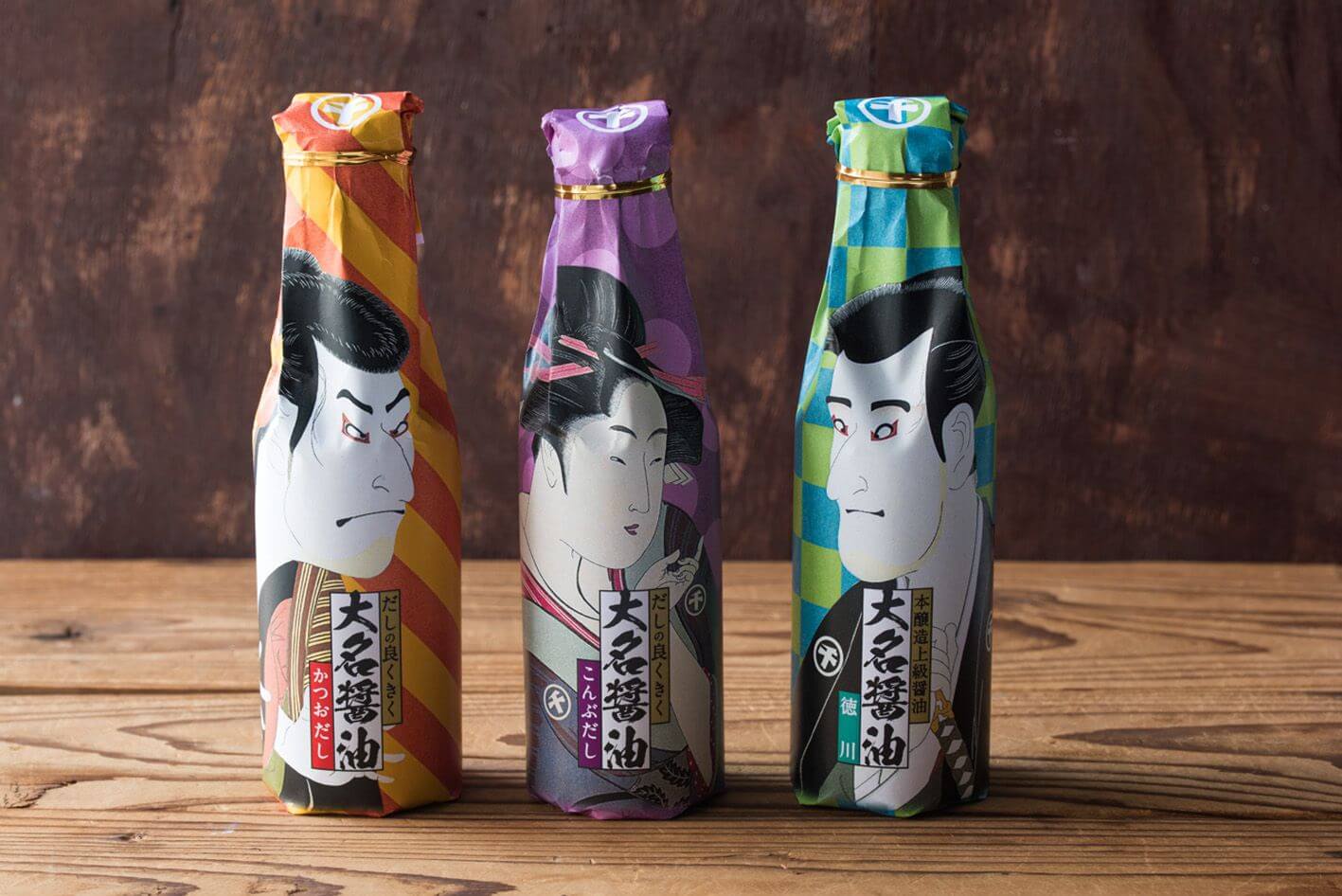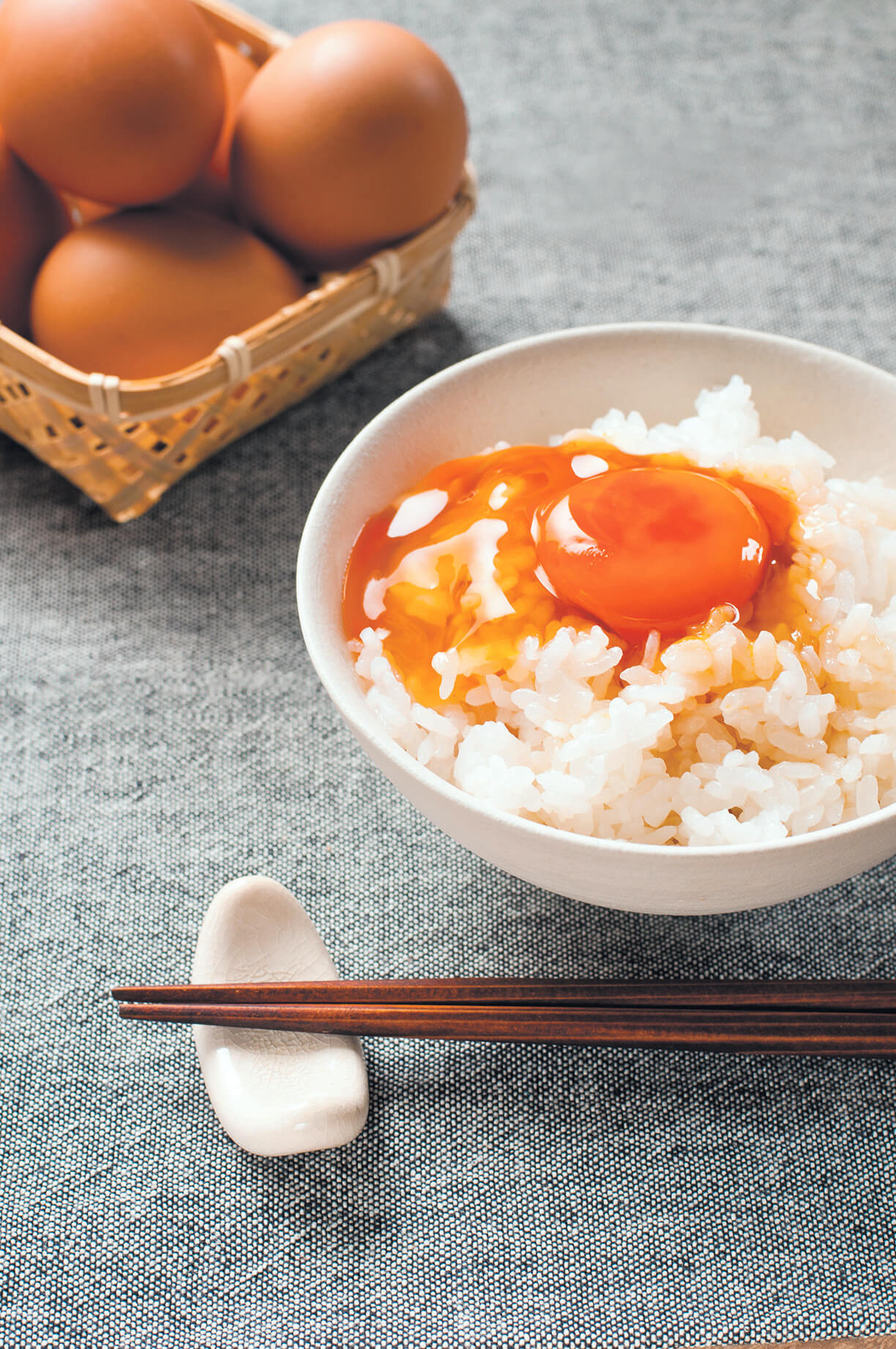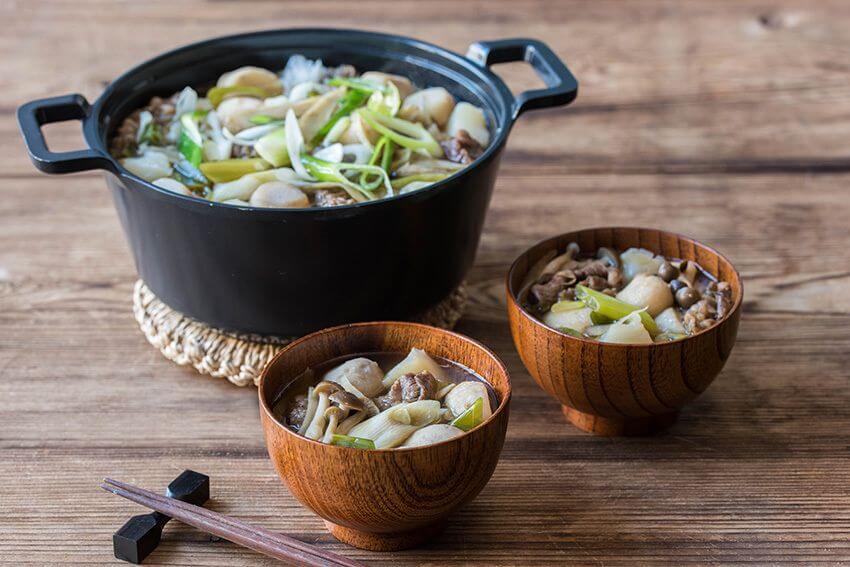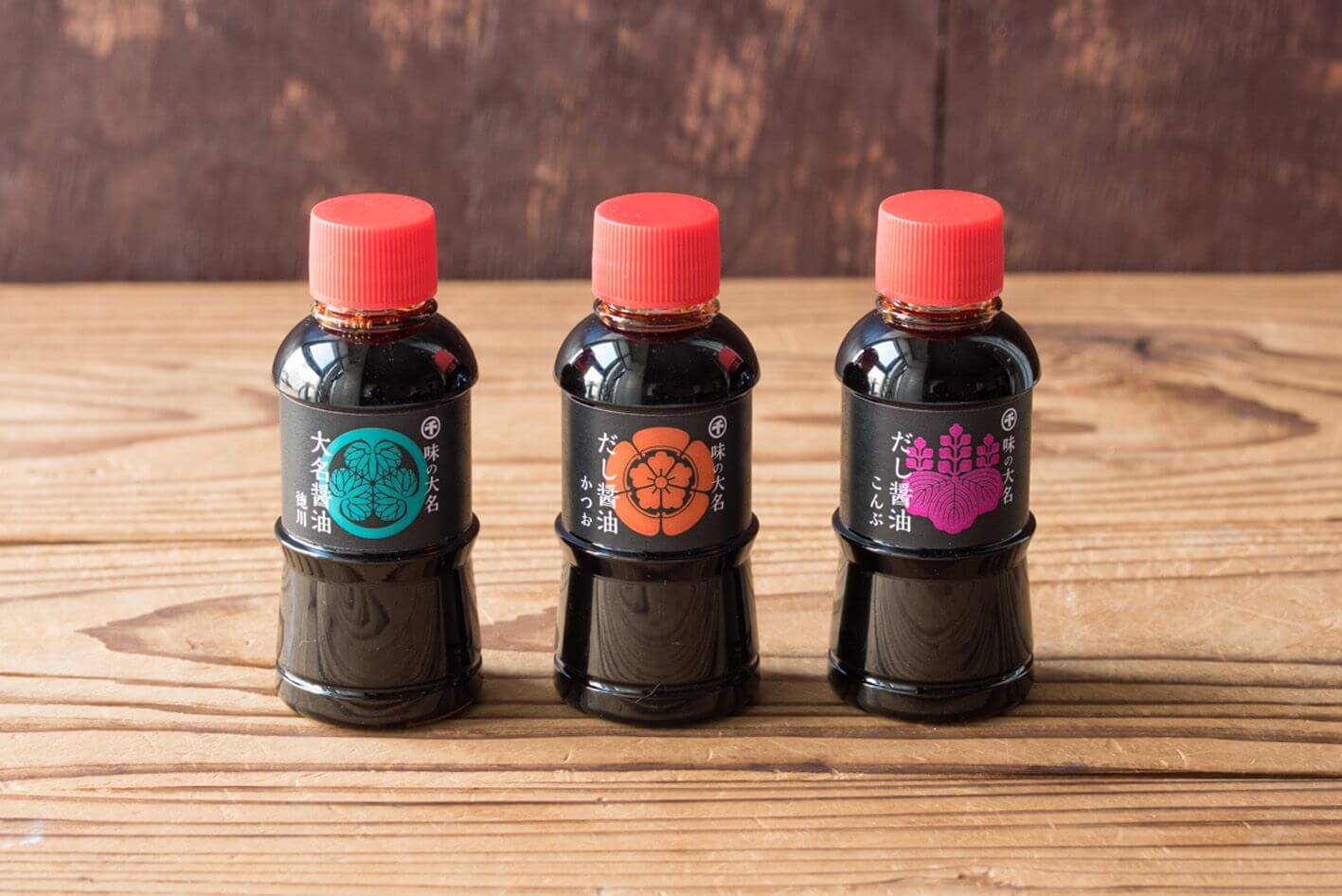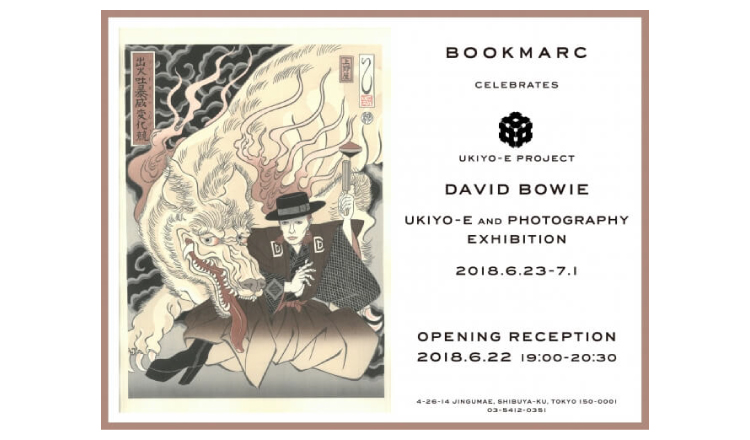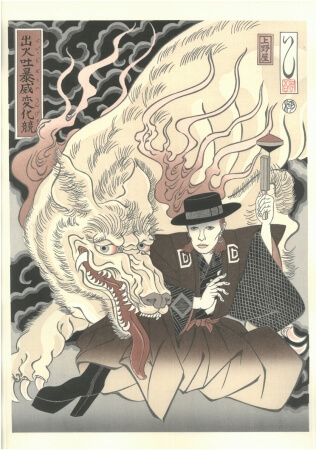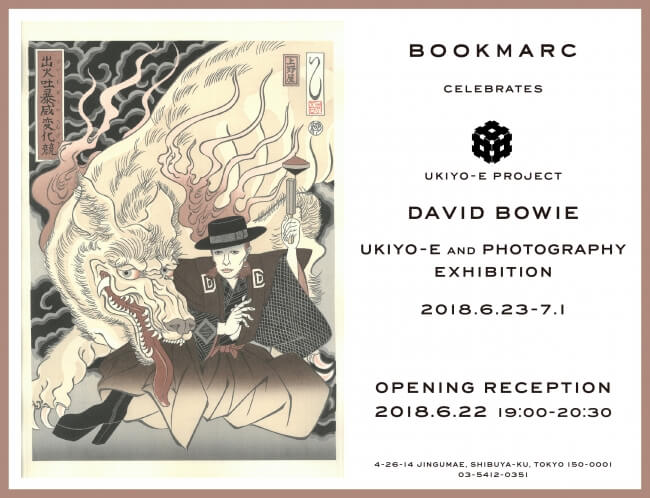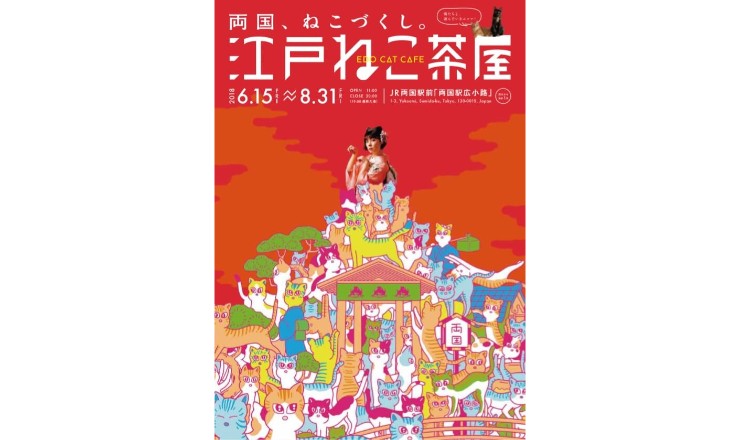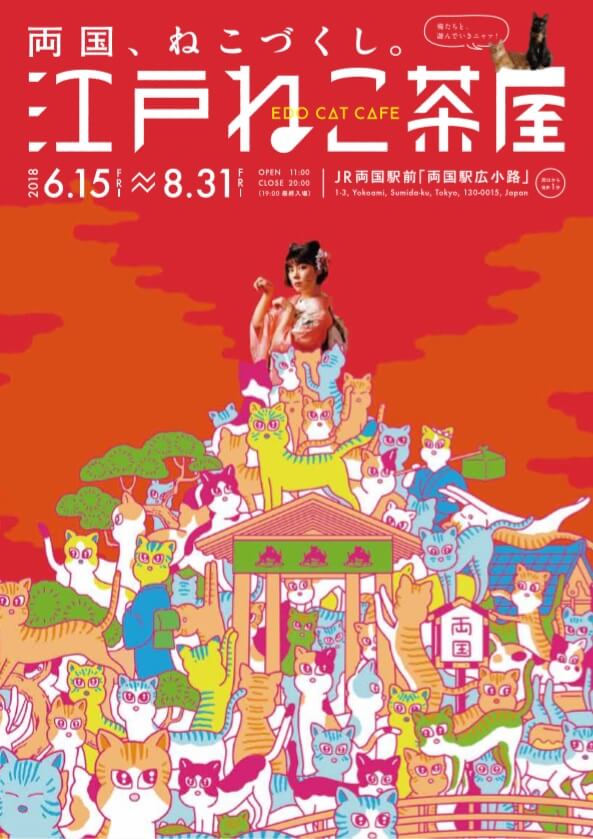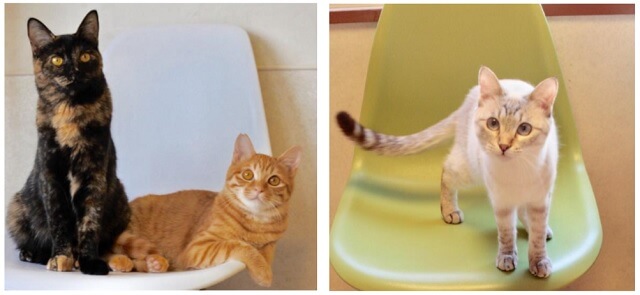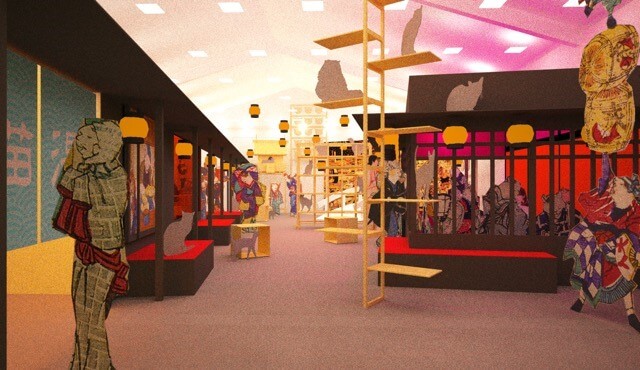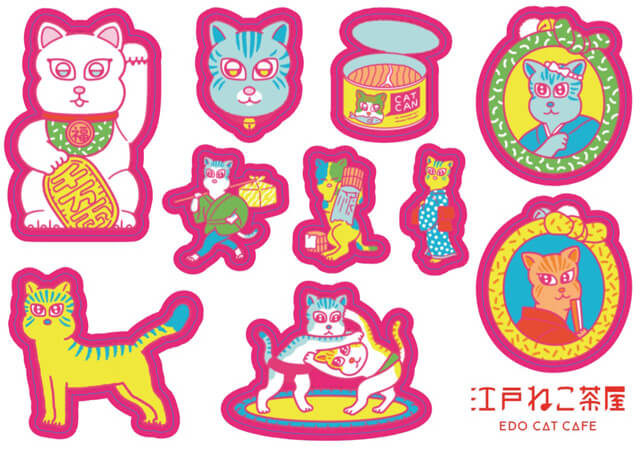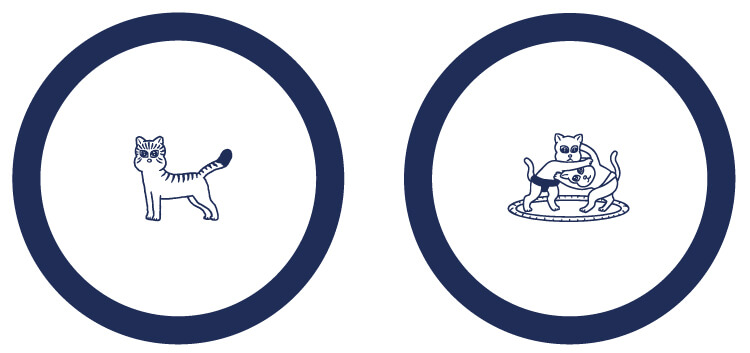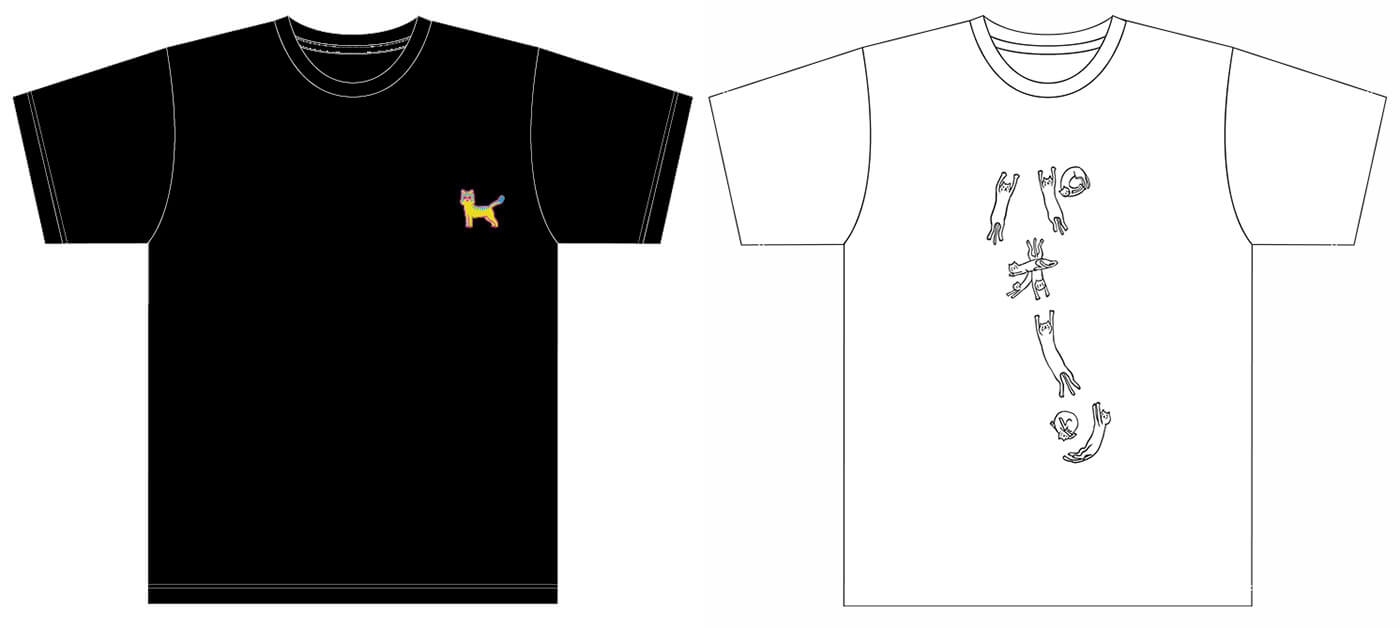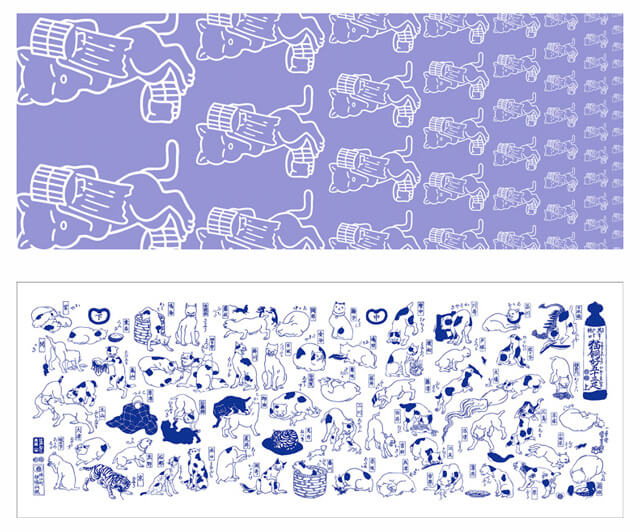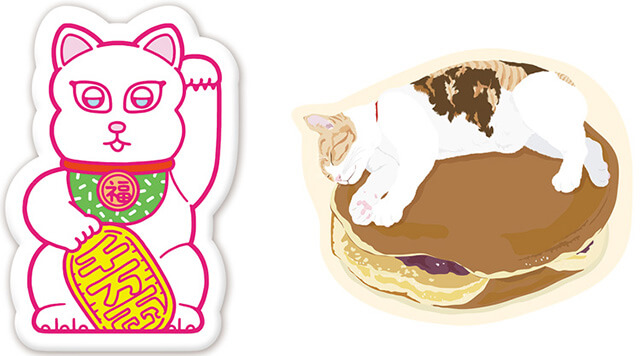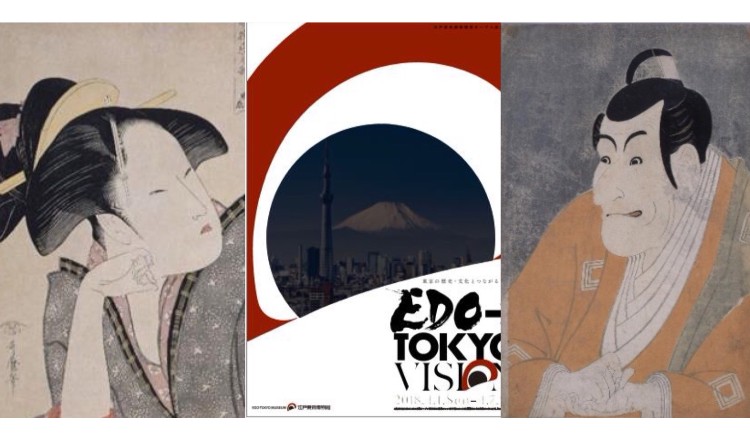Smartphone case brand ARTiFY showcased its Klimt and ukiyo-e glitter cases at art museums in Japan last year, which was a huge hit. They were so popular that the company has decided to make them available to consumers online.
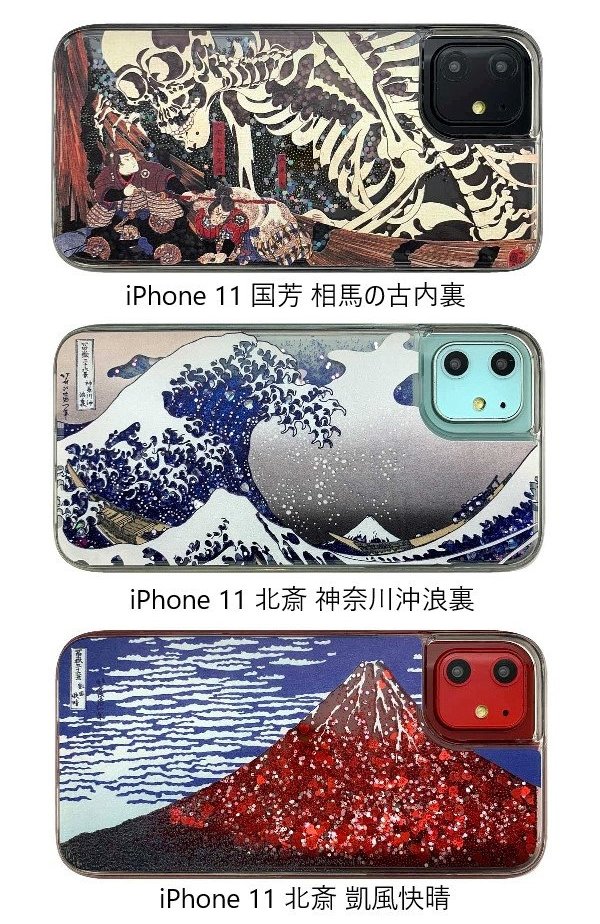
The brand’s name, ARTiFY, means to “make something into art.” But for them, that doesn’t simply mean a piece of art to look at: it’s things you can wear, things you use in your everyday life and beyondーbringing life and art together and making it more fun and integrated.
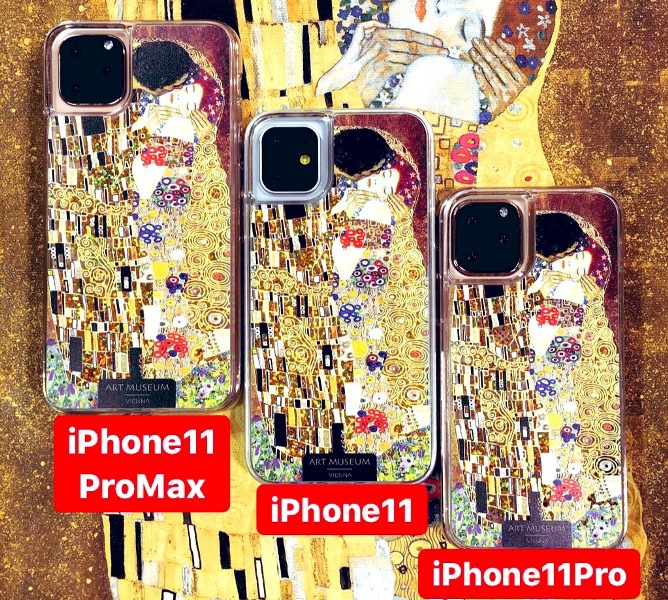
ARTiFY’s products are on the rise. You can find their products at the Ukiyo-e exhibition at the Fukuoka Art Museum’s museum shops, and in the run up to the Tokyo 2020 Olympics, the number of souvenir shops aimed at foreign tourists they are stocked in are set to go up.
Information
Ukiyo-e iPhone Glitter Cases
Designs: Soma no Furudairi by Utagawa Kuniyoshi / The Great Wave off Kanagawa by Hokusai / Fine Wind, Clear Morning by Hokusai
Released: February 10, 2020
Price: ¥3,960 (Tax Included)
Compatible With: iPhone6, 6s, 7, 8, iPhoneX/Xs, iPhone 11, iPhone 11 Pro, iPhone 11 Pro Max
Available: Art museums, museums, online stores and elsewhere in Japan
RELATED ENTRIES
-
Marunouchi House Celebrates 15th Anniversary with First Ukiyo-e Exhibition
Marunouchi House, a restaurant on the 7th floor of the new Marunouchi Building, will celebrate its 15th anniversary on April 27, 2022. To celebrate, the UKIYO-E PROJECT in Marunouchi House event will be held from March 1 to March 31, with a number of contemporary ukiyo-e prints on display. A printing demonstration and hands-on event will also invite guests to see more of the artistic process.
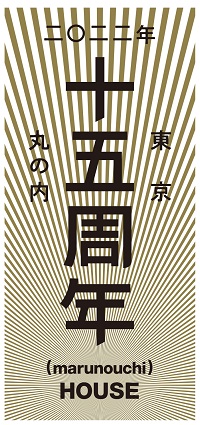
Marunouchi House 15th Anniversary Logo
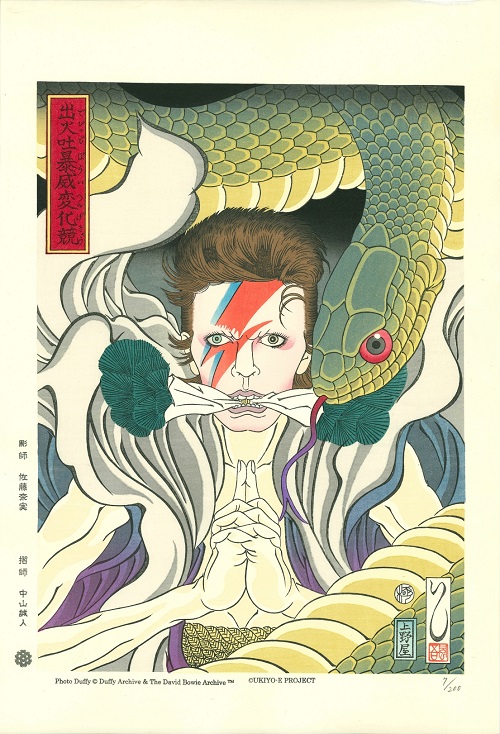
David Bowie Hengekyou “Kidomaru”
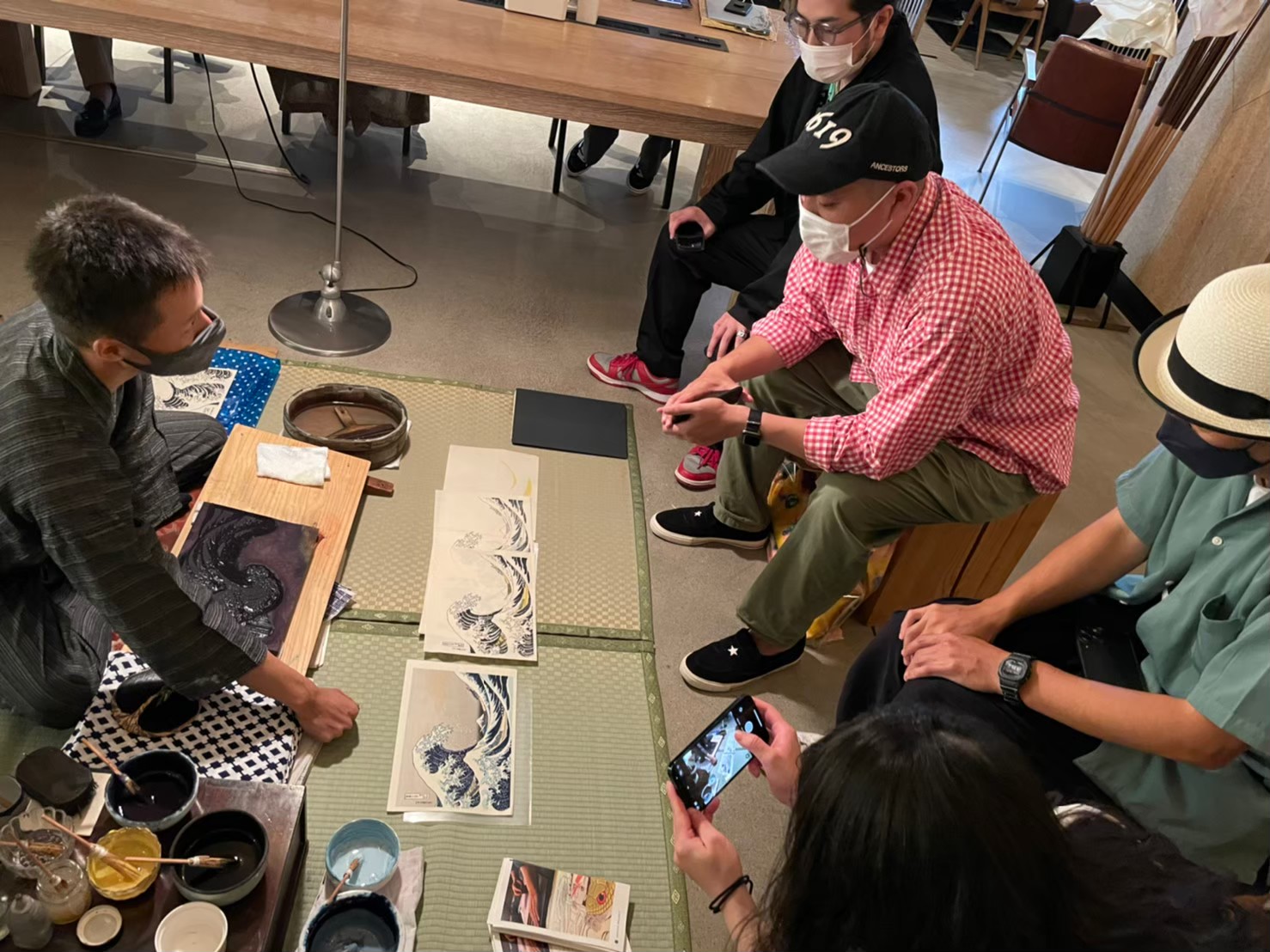
Printing Demonstration
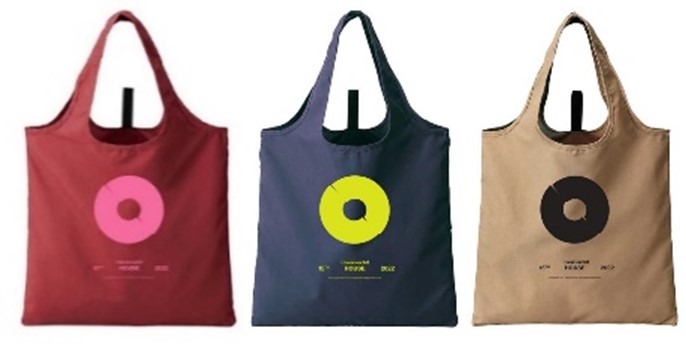
15th Anniversary Special Reusable Bag
This event is being held with help from the UKIYO-E project, which is working to bring the expressive imagery of ukiyo-e to the modern age. Woodblock prints are a part of Japan’s history, and visitors will have more of a chance to understand this unique art form by participating in the exhibition’s many events.
Starting on March 7, guests who spend ¥2,000 yen (tax included) or more per person at Marunouchi House will receive a 15th-anniversary special reusable bag designed by Naomi Hirabayashi.
Information
UKIYO-E PROJECT in Marunouchi House
Running: March 1 – March 31, 2022
Location: Marunouchi Building 7F, Marunouchi House Library Space
Hours: 11:00-23:00
Official Site: https://www.marunouchi.com -
Actor Chafurin Performs Special Reading of ‘Hoichi the Earless’ at Ukiyo-e Theater from Paris’
The Kadokawa Musashino Museum in Saitama is currently holding the 360-degree experimental exhibition Ukiyo-e Theater from Paris to continuously promote Japanese culture to the world. Actor Chafurin, known for his voice work in popular anime series like Detective Conan and Chibi Maruko-chan, is the owner of ‘Shurindo,’ a group of popular actors devoted to storytelling with sake. The recitation group will be holding a special event at the museum on January 16, 2022, where a group of personalities will perform the classic story ‘Hoichi the Earless,’ a popular piece of Japanese folklore.
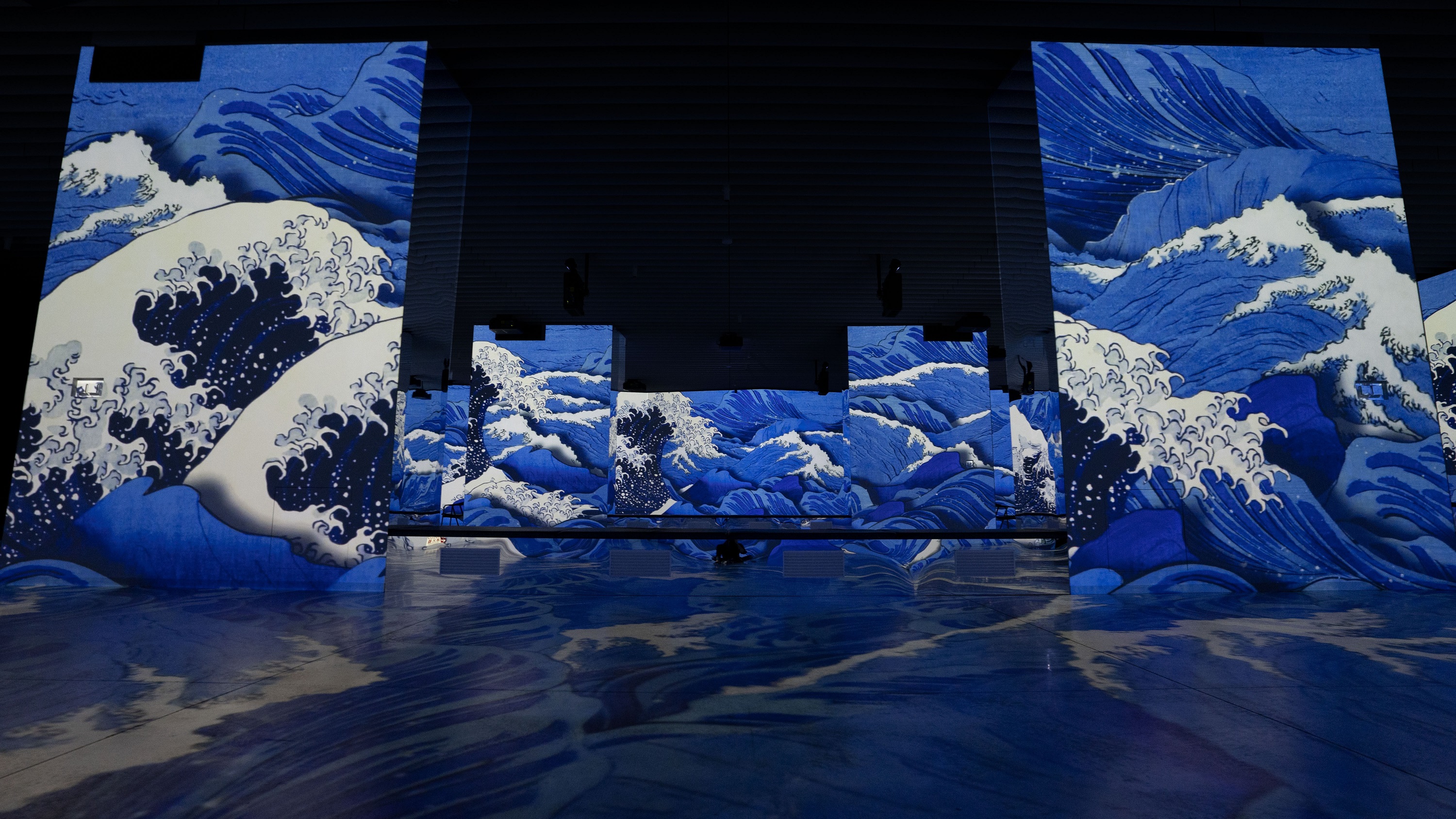
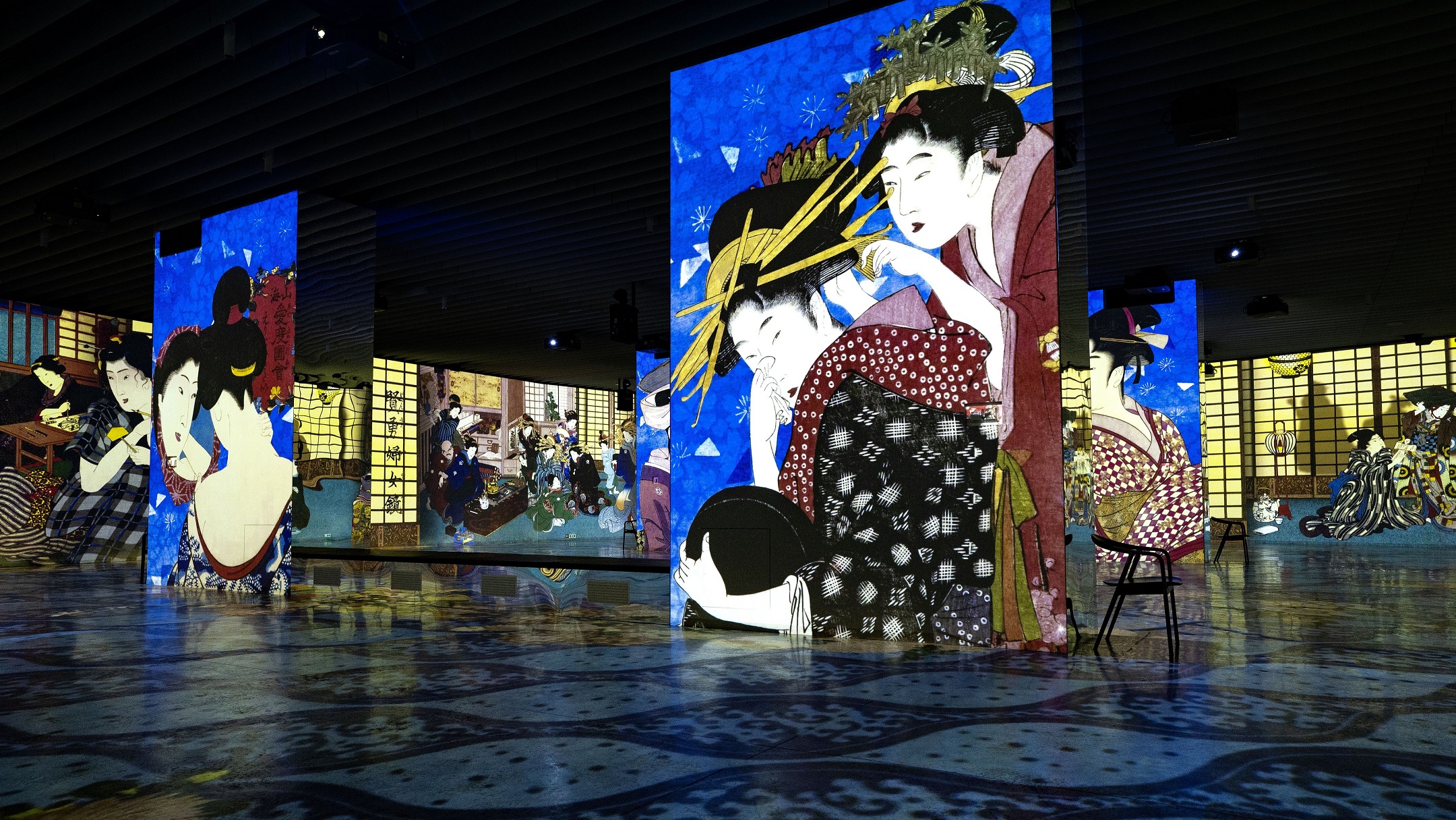
Ukiyo-e from Paris Design
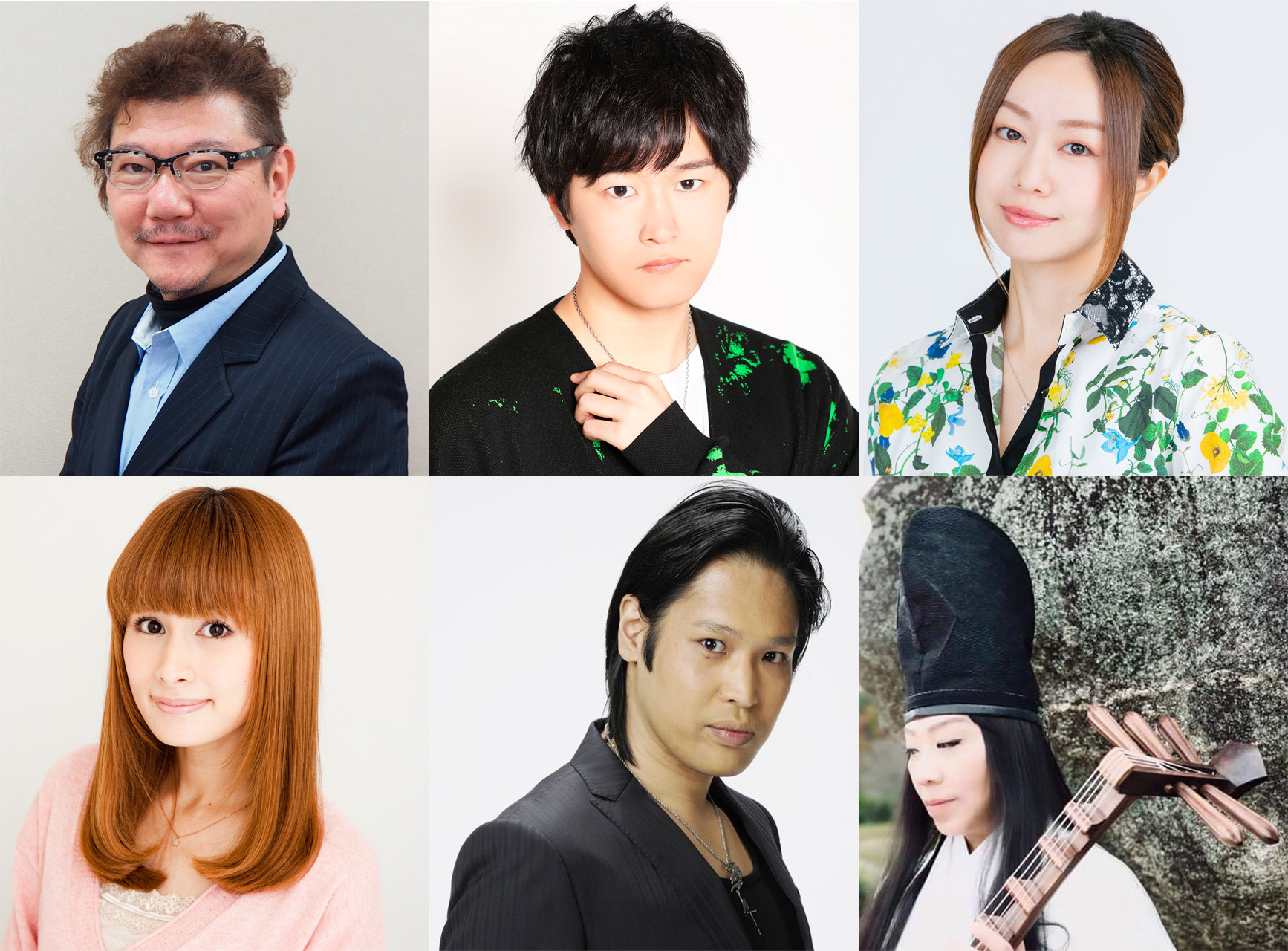
Starring: Chafurin, Ryota Osaka, Mutsumi Tamura, Mai Nakahara, Satoshi Tsuruoka, Kafu Ohmine (Biwa Player)
Danny Rose Studio has helped create a giant video space for the new exhibition, combining the old and the new. The Dreamed Japan – Images of the Floating World exhibition has been experienced by over 2 million people in France, and was brought back to Japan with enhancements in October 2021. Twelve unique works of art are dynamically projected on a massive space, transporting visitors into an entirely new world based on ukiyo-e pieces.
This performance will be a special one-time event bringing together a selection of famous actors and a traditional biwa player. Hoichi the Earless tells the tale of an extremely skilled blind biwa player and his experiences with the samurai and a terrifying ghostly retainer.
After the show, guests can enjoy the afterparty in which visitors and the performers can mingle and have a cocktail. More details will be announced on social media soon!
Participants are yet to be determined. There will be no archive of the afterparty. Those purchasing alcohol will be asked for ID. Please note that the schedule is subject to change.
Information
Reading at Ukiyo-e in Paris Exhibition, ‘Hoichi the Earless’
Date: January 16, 2022 at 18:00 (Doors Open at 17:30)
Address: Tokorozawa Sakura Town Kadokawa Musashino Museum 1F Grand Gallery
(3-31-3 Higashitokorozawawada, Tokorozawa, Saitama)
Admission: ¥10,000 (Tax Included)
Tickets: https://tix.kadcul.com/Show URL: https://live.nicovideo.jp/watch/lv335023330
Archive Viewing Period: Available until April 10, 2022 at 23:59 / Watch as many times as you like during the viewing period. For more details, visit the Niconico website.
Price: ¥3,000 (Tax Included)
Starring: Chafurin, Ryota Osaka, Mutsumi Tamura, Mai Nakahara, Satoshi Tsuruoka, Kafu Ohmine (Biwa Player)Shurindou Society: http://www.syurindou.com/
Ukiyo-e from Paris: https://kadcul.com/event/50
Kadokawa Musashino Museum: https://kadcul.com/
Official Site: https://kadcul.com/event/60 -
Kadokawa Musashino Museum Celebrates First Anniversary with Ukiyo-e Theater from Paris Project
To celebrate the location’s first anniversary, the Kadokawa Musashino Museum will hold a 360-degree experimental exhibition titled Ukiyo-e Theater from Paris starting October 30. The theater continuously holds showings to help share Japanese culture with both domestic and international visitors.
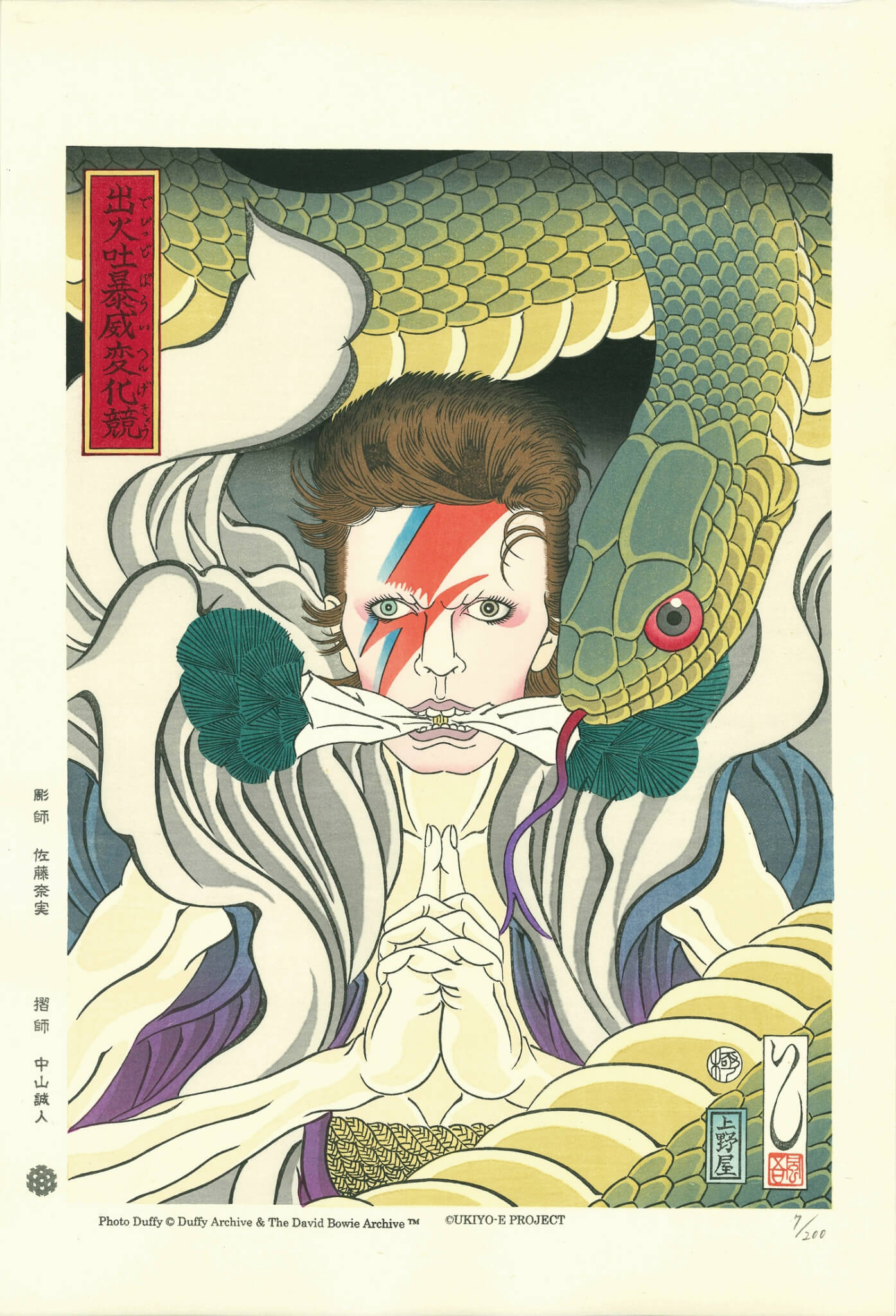
Bowie as Kidomaru. Masumi Ishikawa for the Ukiyo-e Project
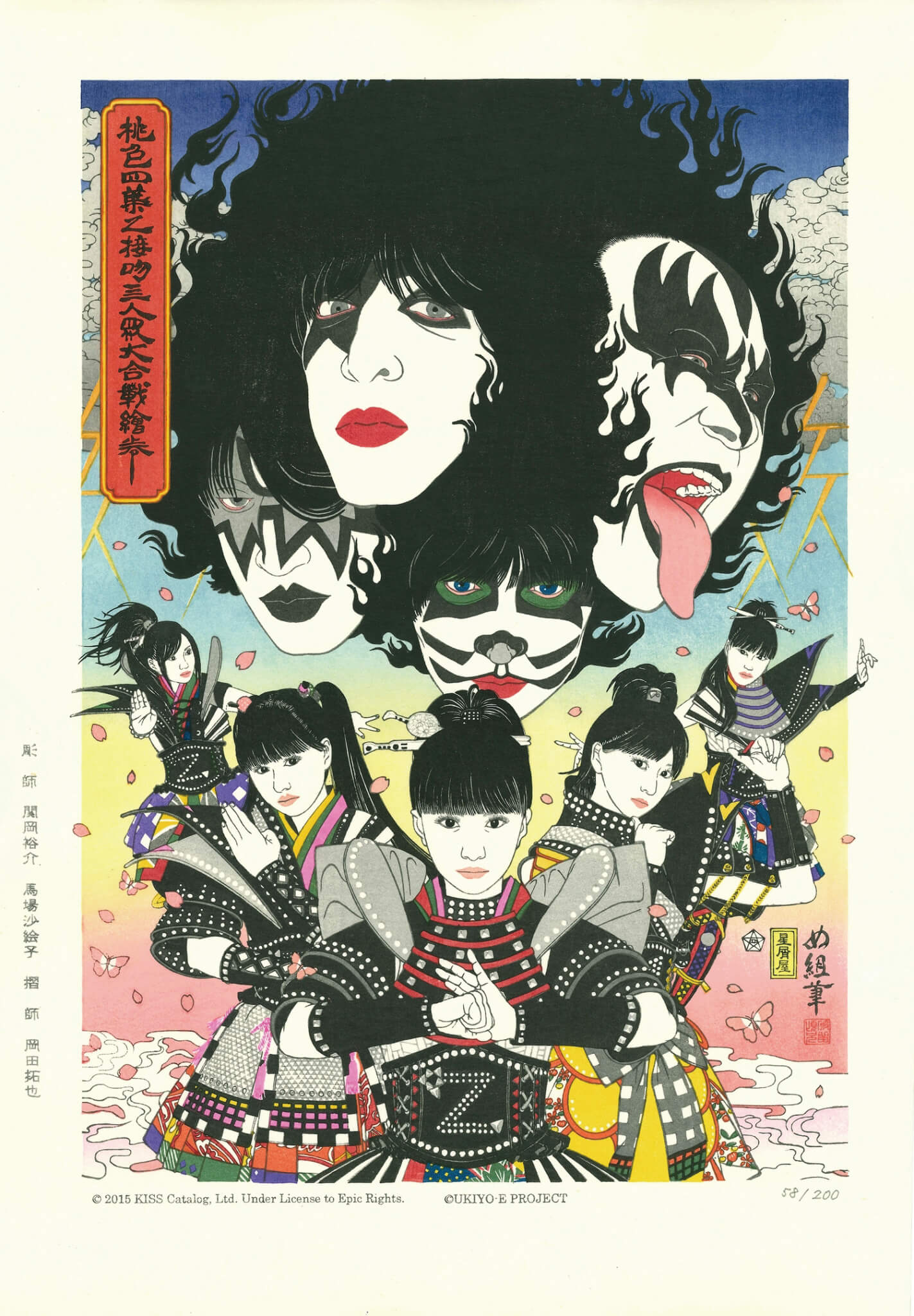
Momoiro Clover Z and KISS. Megumi Oishi (BALCOLONY) for the Ukiyo-e Project
In the Edo period, the price of one ukiyo-e print was 28 mon, the same as a bowl of soba noodles. The word ukiyo means ‘this world,’ and these paintings captured the familiar and the mundane. In that period of time, these creations were what television, the internet, and Instagram are to us today. In the 19th century, ukiyo-e pieces first appeared in Europe and made a large impact on impressionist artists, which continues to this day.
Danny Rose Studio has helped create a giant video space for the new exhibition, combining the old and the new. The Dreamed Japan – Images of the Floating World exhibition has been experienced by over 2 million people in France and is now coming to Japan for the first time with some new enhancements. Twelve unique works of art will be dynamically projected on a massive space, transporting visitors into an entirely new world. Clocks will tick, lanterns will dance in the air, cherry blossoms will flutter in the wind, and waves will rush overhead.
In the back of the Grand Gallery, a large number of ukiyo-e prints used by the Danny Rose Studio will be on display along with works by contemporary Japanese ukiyo-e artists.
Information
Ukiyo-e Theater from Paris
Running: October 30, 2021 – April 10, 2022
Kadokawa Musashino Museum 1F Grand Gallery
Details: https://kadcul.com/event/50
-
Doraemon Appears in Traditional Ukiyo-e Woodblock Print Limited-Edition Release
11.October.2021 | FASHION
Everyone’s favorite robot cat is making a peculiar appearance inside a piece of famous Japanese art! Using traditional Ukiyo-e crafting techniques, the Hanzou company has successfully inserted Doraemon into the painting Fujimigahara in Owari Province by Hokusai, originally created between 1830 and 1832. The painting will be available to preorder online starting October 8, 2021, with only 300 copies available!
Ukiyo-e Woodblock Print Production Process
Engraving by Craftsman
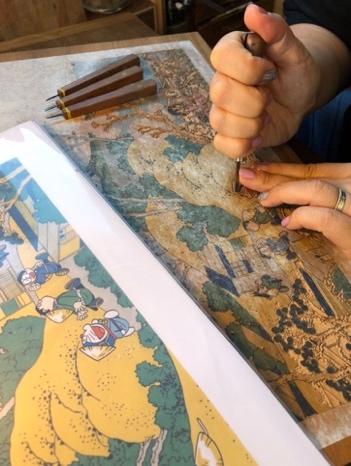
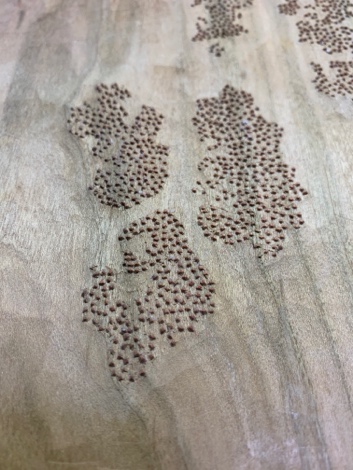
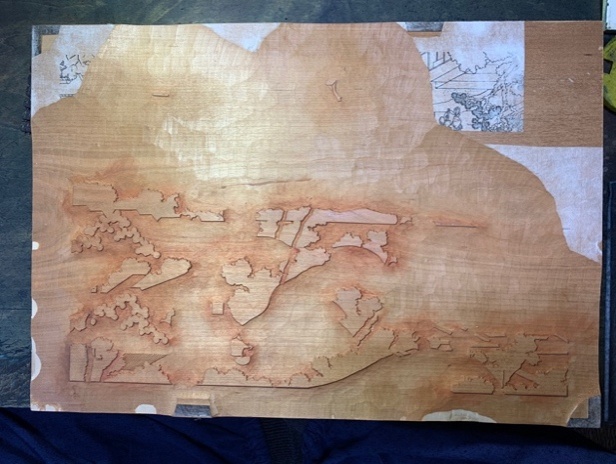
Rubbing by Craftsman
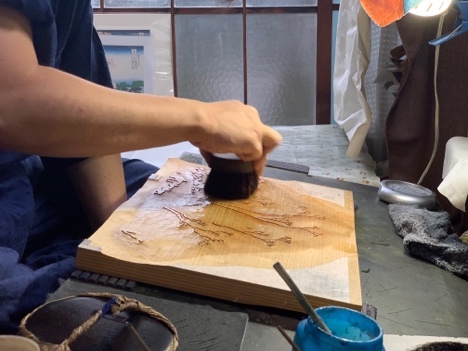
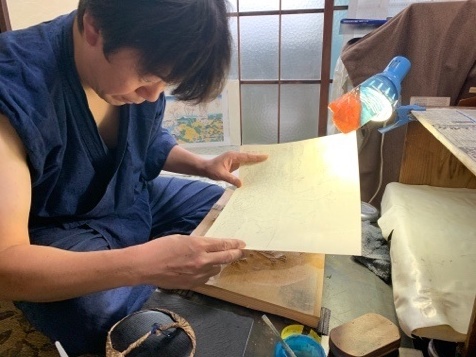
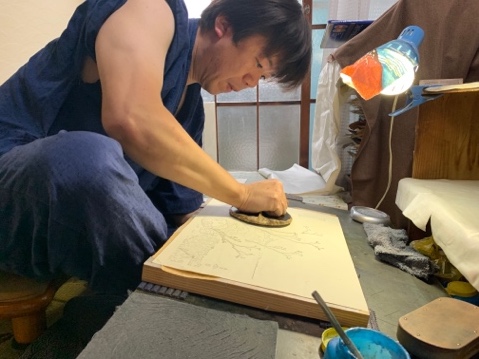
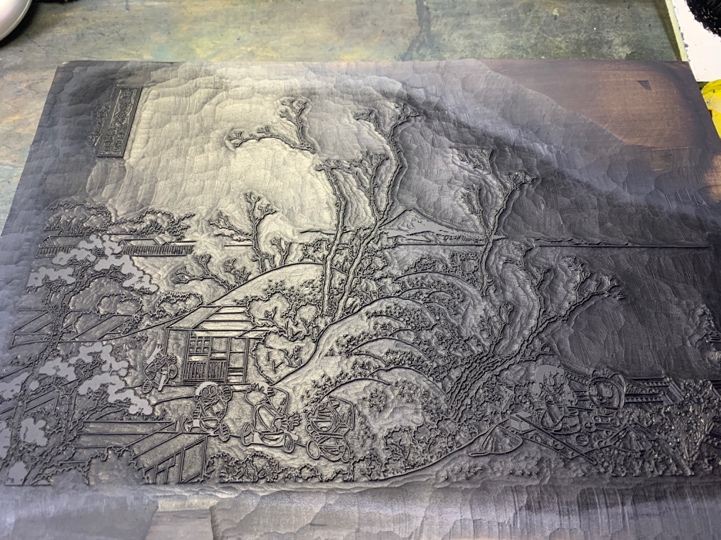
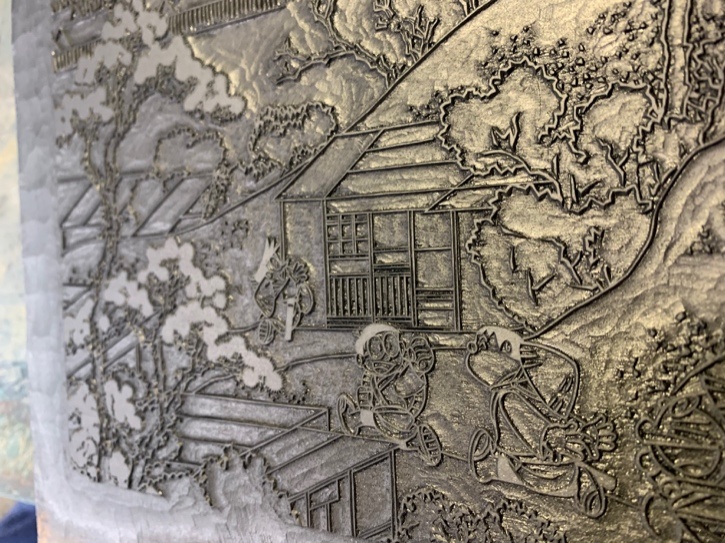
First, a sketch is made, and a monochrome version of the print is carved. After carving a number of woodblocks for each color and using them to rub the painting tirelessly to bring it to life, one single woodblock print is completed. The extremely delicate and advanced techniques these craftsmen utilize have been passed down from the Edo period.
The original painting was created after Hokusai turned 70, and took two years to complete. The painting is said to portray the view of Mount Fuji from Fujimi-cho, Naka-ku, Nagoya City. An eccentric piece for the time, looking closely shows that each and every line and dot was meticulously calculated. Note the vivid indigo sky and the abundance of blue shades that Hokusai loved to use. Doraemon and Nobita are shown having fun as they make barrels, a welcome departure from the more stoic figure in the original painting.
Information
Doraemon Ukiyo-e Woodblock Print: Fujimigahara in Owari Province from the series Thirty-six Views of Mount Fuji
Preorders begin on October 8, 2021, at 12:00
Price: ¥46,000 (Tax and Shipping not Included)
Number of available copies: 300
Echizen-Manufactured Washi Paper Provided by Iwano Ichibei
Online Shop: http://ukiyoework.com/
-
Chiba City Museum of Art Brings Ukiyo-e Exhibition to Osaka’s Takashimaya Department Store
21.September.2021 | SPOT
New Prints: The Evolutionary Beauty of UKIYO-E, featuring pieces from the Chiba City Museum of Art, will be held at Takashimaya Osaka from September 15-27, 2021.
Ukiyo-e, or woodblock prints, were exceptionally popular as a Japanese art style from the 17th to the 19th centuries. Now, a new exhibition coming to Osaka is highlighting the ‘Shin-hanga’ movement, which took place during the early 20th century and focused largely on the creation of pieces to sell to foreign markets. The man behind this movement was Shozaburo Watanabe, who commissioned artists to design prints blending traditional Japanese techniques with unique elements of Western paintings at the time, such as shadowing and different perspectives.
The exhibition will contain 120 works selected from the Chiba City Museum of Art’s Shin-hanga collection, ranging from early masterpieces such as Goyo Hashiguchi’s ‘Woman at her Bath,’ Ito Shinsui’s ‘Before the Mirror,’ as well as rich depictions of Japanese landscapes by Hasui Kawase and international landscapes by Hiroshi Yoshida.
Selection of Featured Works
Twelve Months of Tokyo: Evening Glow at Yanaka – Hasui Kawase. 1921.
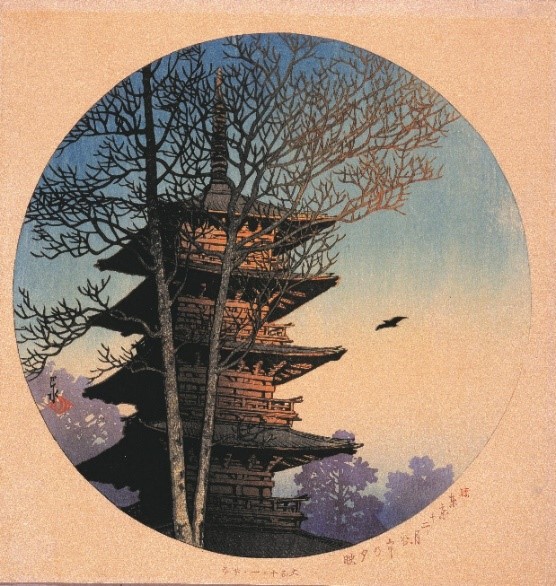
The Twelve Months in Tokyo series consists of twelve paintings based on sketches made by Kawase between December 1920 and October 1921. While twelve pieces were planned, only four circular pieces and one square piece were completed. Evening Glow at Yanaka depicts a five-story pagoda glowing faintly in the light of the setting sun. Kawase has stated that as he finished sketching the piece, he heard the sound of a bell, and for some reason, he had the uncanny feeling that he needed to straighten his collar.
Sailing Boats in the Morning: Inland Sea – Hiroshi Yoshida. 1926.
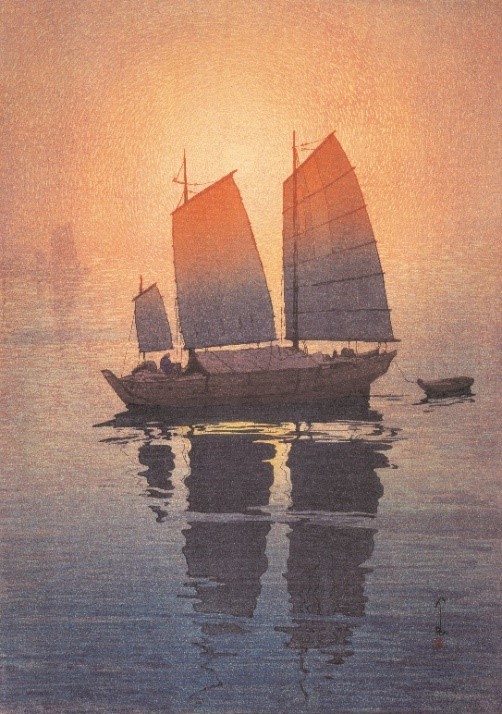
Yoshida began work on the Sailing Ship trilogy in 1921 under Shozaburo Watanabe, but all of his woodblocks and most of his works were lost in the Great Kanto Earthquake. Five years later, Yoshida decided to tackle the project again, this time deciding on six pieces. In contrast to the originals under Watanabe, these pieces tackled more nuanced periods of time and give a stronger sense of tranquility. Pay attention to the slight variations in color and light.
Before the Mirror. Ito Shinsui. 1916.
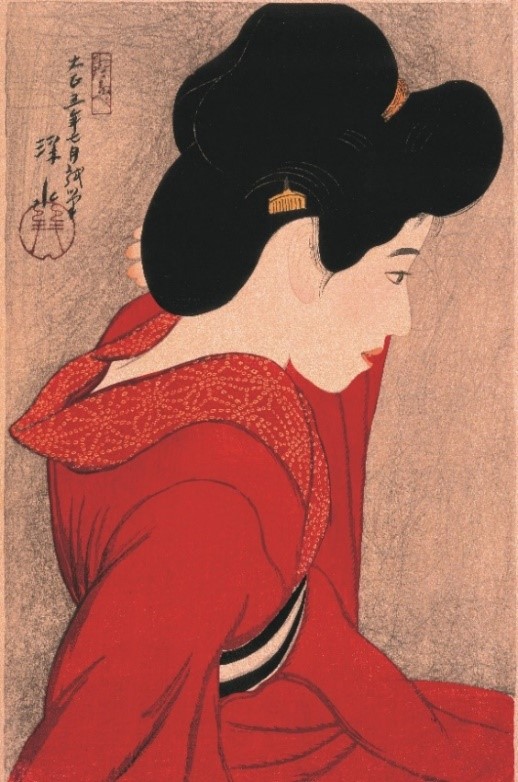
This is the first Shin-hanga work by Ito Shinsui. The piece only uses three colors: red, black, and white, and utilizes serrated carving to give the impression of shadows. Using layers of rare high-quality red paint, this work has been deemed a masterpiece by fans of the movement, conveying Shinsui’s subtlety when depicting the feminine figure.
Fashions of the Modern World: Tipsy – Kiyoshi Kobayakawa. 1930.
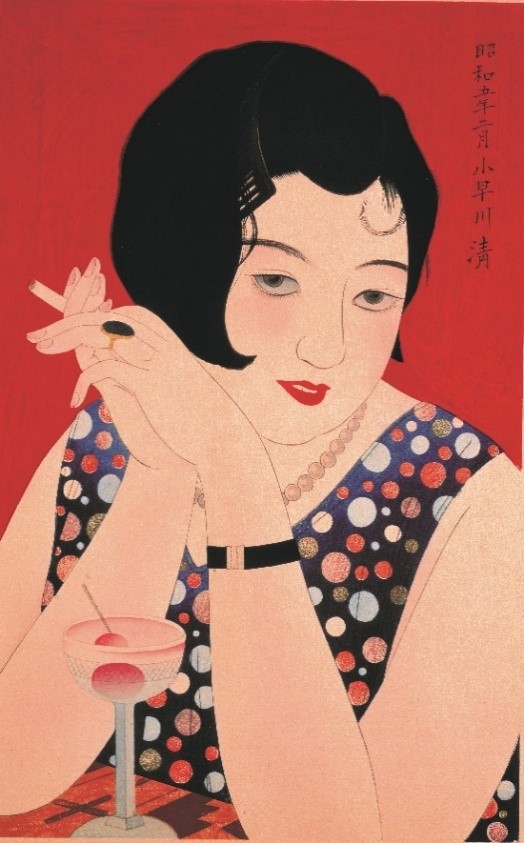
This portrait of a modern lady is one of six in the Fashions of the Modern World series by Kobayakawa, and is regarded by many as the best in the bunch. Produced between 1930 and 1931, the artist portrayed the unique personalities of women, rather than sticking to tradition. The woman in this portrait isn’t demure or quiet, but instead shows off her short hair, a cigarette, rings, and a cocktail in her hand, showing a different side to the Japanese women of the period.
Combing the Hair. Goyo Hashiguchi. 1920.
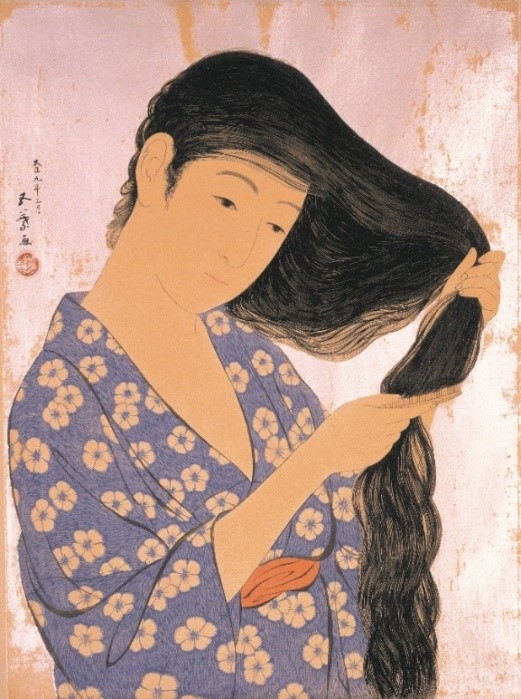
With her overflowing black hair and elegant appearance, the subject of Combing the Hair makes it clear why this is Hashiguchi’s most representative work. The woman’s name is Tomi Kodaira, and she modeled for many of the artist’s works, being discovered by him as she was modeling at a nearby art school. The pose is said to be inspired by Rossetti’s Lady Lilith, but her expression is unique to Hashiguchi and the typical style of ukiyo-e.
Information
Installation from Chiba City Museum of Art – Shin-hanga: The Evolutionary Beauty of UKIYO-E
Where: Takashimaya Osaka 7F, Grand Hall
Running: September 15 – September 27, 2021
Details: https://www.takashimaya.co.jp/store/special/shinhanga/index.html
-
Hokusai and Hiroshige Japan Blue Ukiyo-e Exhibition Opens in Shinjuku
The Adachi Foundation for the Preservation of Woodcut Printing is currently holding an exhibition centred on the Japanese ukiyo-e artists Hokusai and Hiroshige at their permanent exhibition in Shinjuku.
Shibusawa Eiichi (1840-1931) was a Japanese industrialist who is often known as the ‘father of Japanese capitalism.’ In Japan, people have a strong image of him as being a great man of modern history, but in actual fact one third of his life was lived during the same era as when esteemed ukiyo-e artists Hokusai and Hiroshige were alive. The Adachi Foundation’s exhibition focuses on the colour blue, one which has roots during that era and has gone on to become a prominent colour in present day Japanese companies.
The immense popularity of bright blue ukiyo-e
Aizuri-e is a type of woodblock print that is printed predominanetly in blue. They were extremely popular in Edo and used Prussian blue, also nicknamed ‘Japan blue.’ Hokusai used this same colour when creating his famous Thirty-six Views of Mount Fuji, as did Hiroshige, bringing life to the backgrounds and environment.
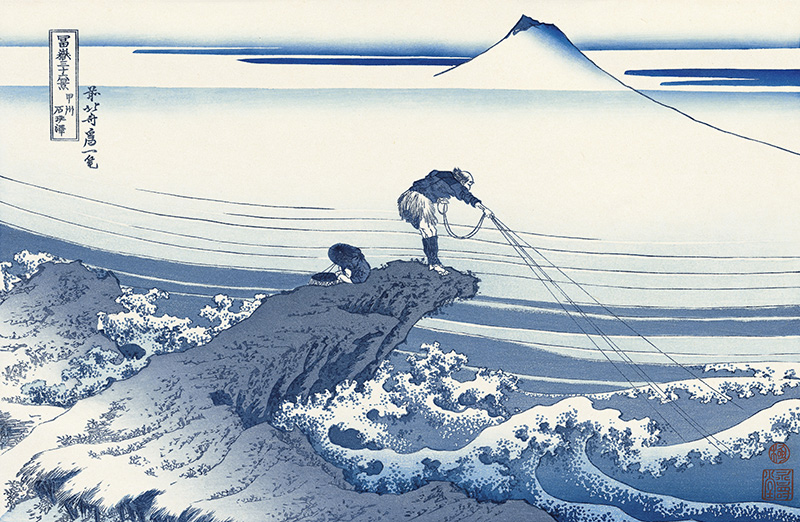
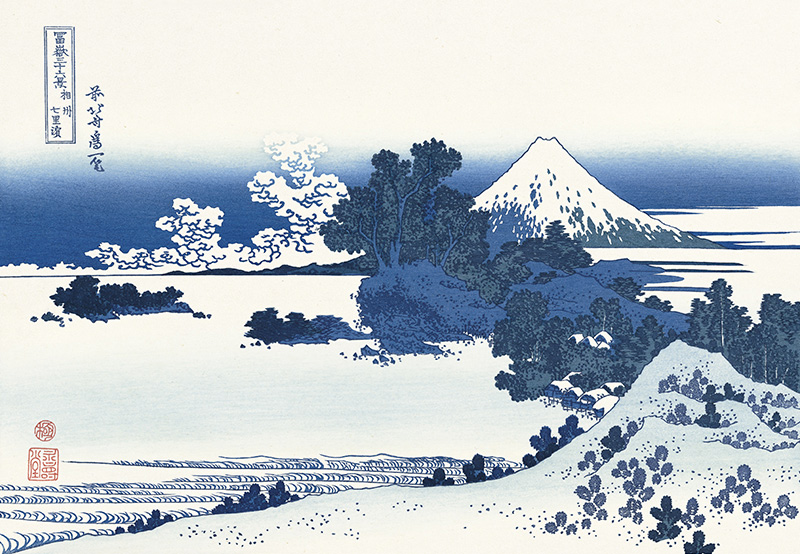
Japan Blue: Ukiyo-e From Japan to Paris
Hiroshige showcased his work at the second Exposition Universelle in 1867, making it the first time for ukiyo-e to be properly shown to the world, allowing for the spread of Japonisme. Taken aback by how he used the Prussian blue, the people of Europe praised Hiroshige’s work and named the colour ‘Hiroshige Blue.’ It was a turning point for Japan as the country began opening up to the world, enabling them to witness the skills of Japanese craft.
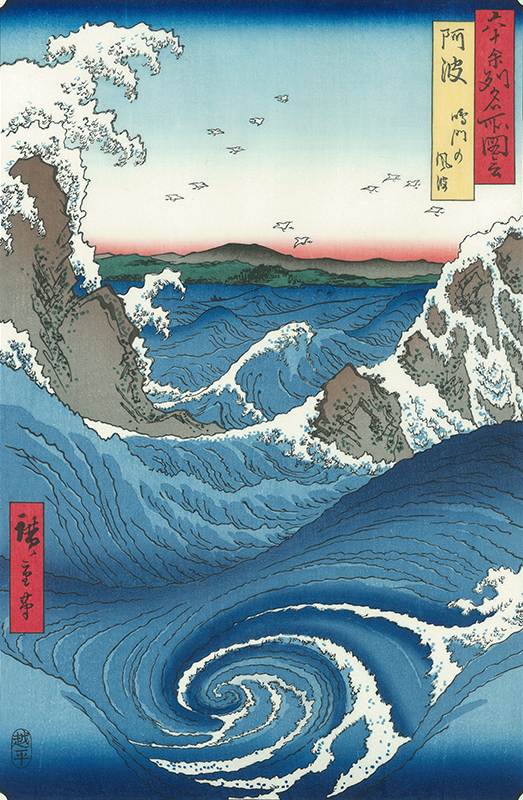
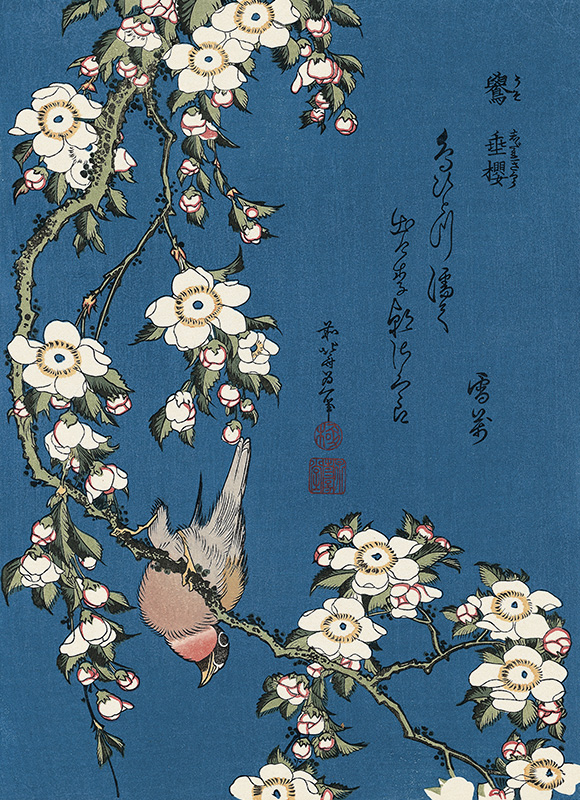
The Adachi Foundation is also hosting the exhibition online in VR for free which is available in both English and Japanese. Visitors can enjoy Hokusai and Hiroshige’s work up close.
Information
Japan Blue in Hokusai & Hiroshige’s Ukiyo-e: The Period in Which Shibusawa Eiichi Lived
Japanese Exhibition Title:「北斎・広重の浮世絵に見るジャパンブルー _~渋沢栄一の生きた時代~」
Running: June 22, 2021 — August 21, 2021
Address: 3-13-17 Shimoochiai, Shinjuku, Tokyo 161-0033, Japan
Opening Hours: [Tue-Fri] 10:00-18:00 / [Sat] 10:00-17:00
Closed: Sundays / Mondays / Public Holidays
Entry: Free
Exhibition Online(JP): https://my.matterport.com/show/?m=WJVeiudxTHg
Exhibition Online(EN):https://my.matterport.com/show/?m=4qQFG4CDSQU
-
Hokusai’s Ukiyo-e Masterpieces Turn Into Chocolate Packaging
07.December.2020 | FOOD
ISHIYA CO.,LTD. released a new batch of its Koisuru Chocolates on Wednesday (December 2) with packaging that features artworks by legendary Japanese painter Hokusai including nine from his Thirty-six Views of Mount Fuji and three from his Hokusai Manga.
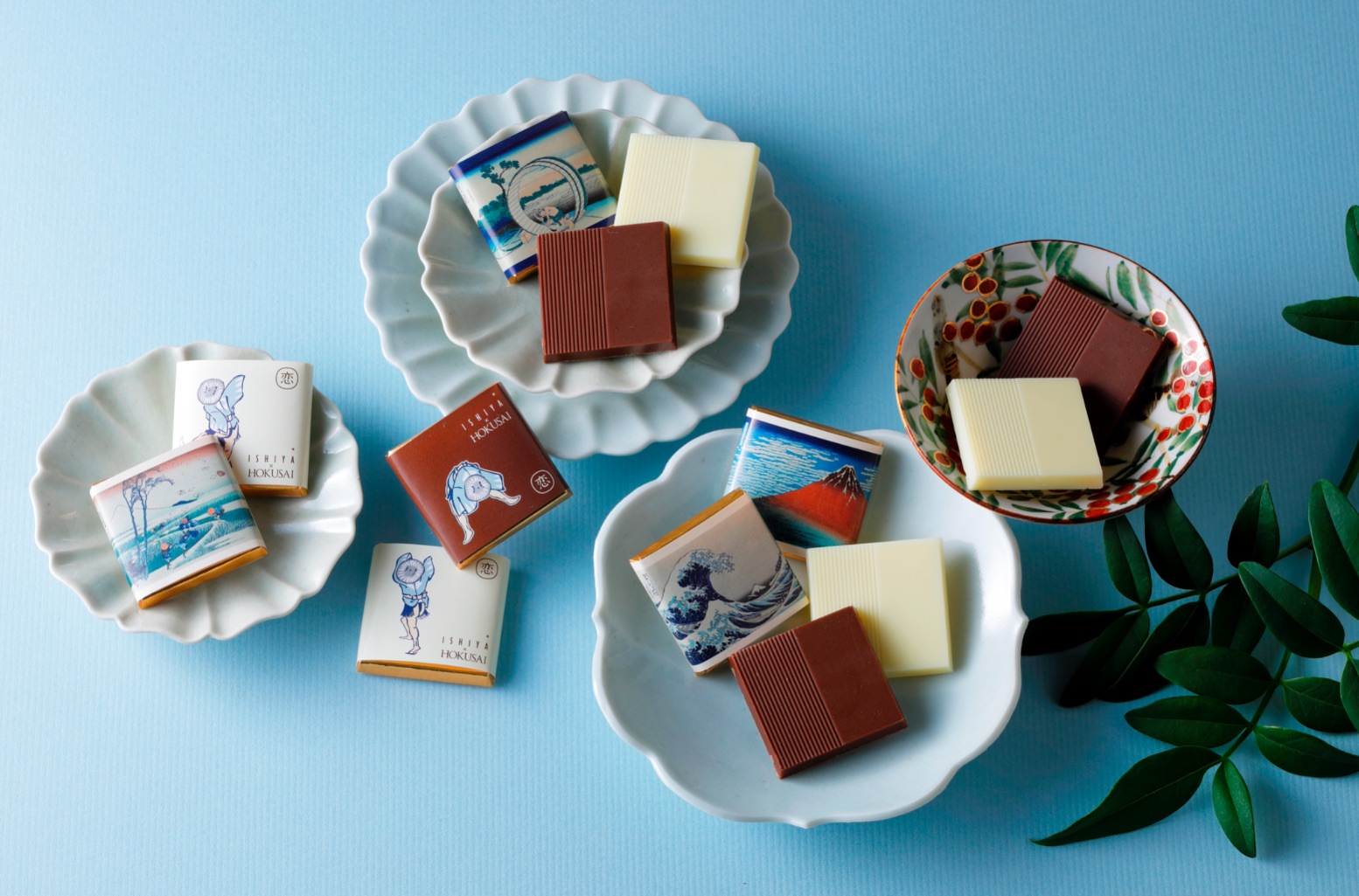
ISHIYA’s Koisuru Chocolate is a twist on Hokkaido’s famous Shiroi Koibito chocolate biscuits, combining white and milk chocolate into a chocolate sandwich coupled with salt from Lake Saroma in Hokkaido to elevate the sweetness.
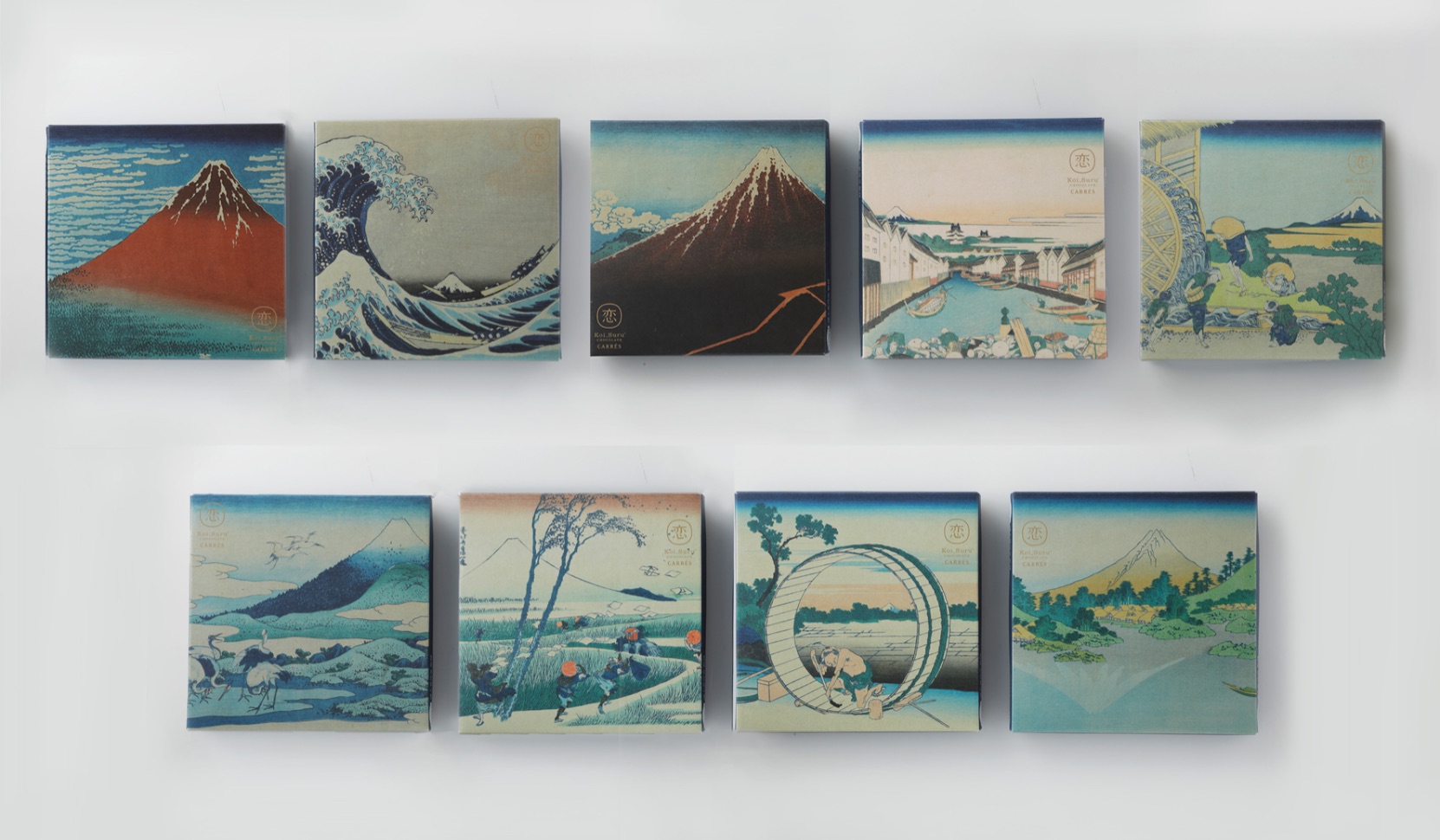
Thirty-six Views of Mount Fuji (9 Designs) | ¥1,080 (Tax Included)
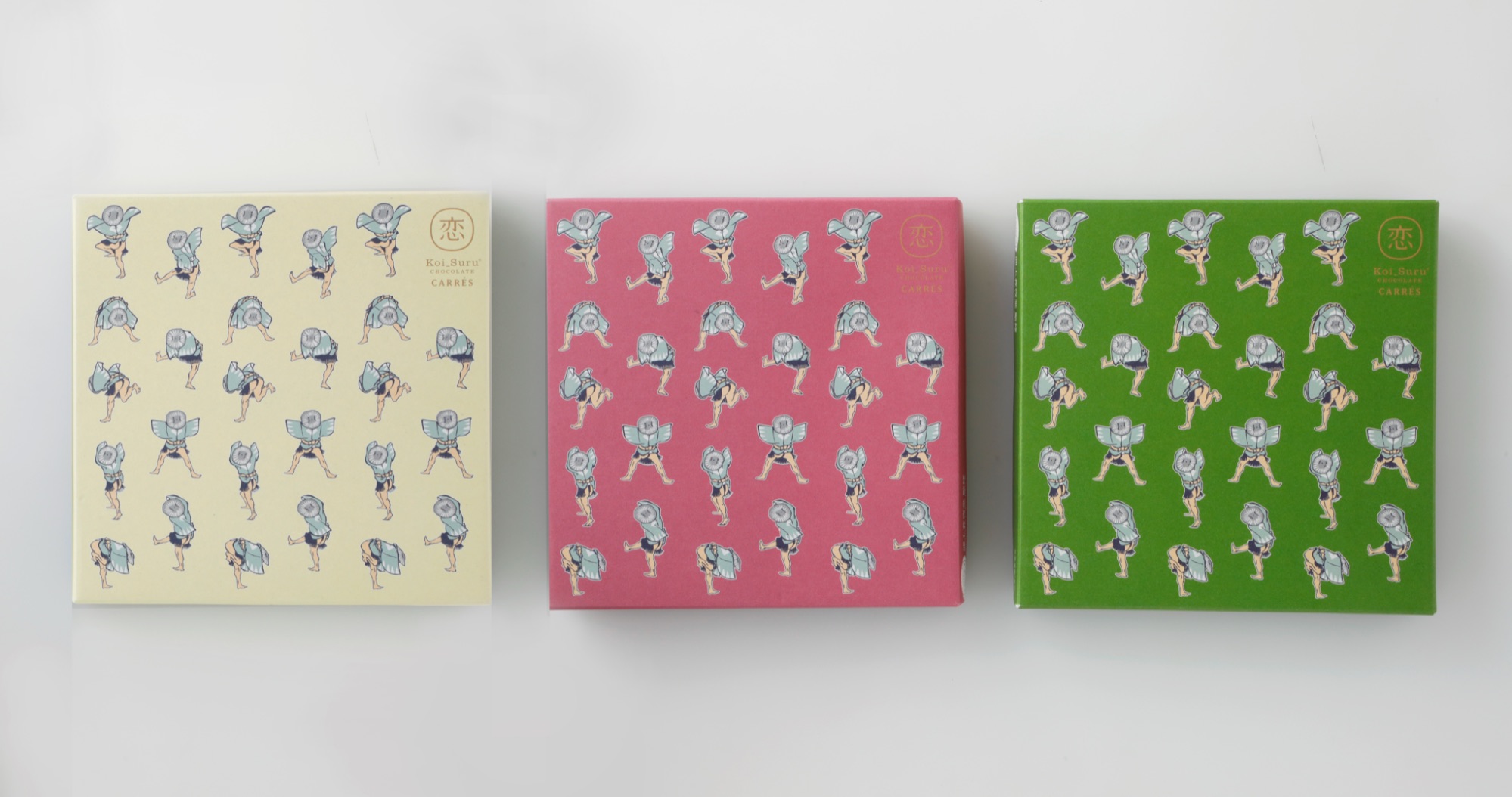
Hokusai Manga (3 Designs) | ¥1,080 (Tax Included)Katsushika Hokusai, most often known just as Hokusai, was a Japanese ukiyo-e painter and woodblock printmaker who is perhaps best known for his woodblock print The Great Wave off Kanagawa, an image recognisable to those even outside of Japan. This year would have marked his 260th birthday, and so various events have been held throughout Japan.
The packaging designs include some of his most famous works including The Great Wave off Kanagawa and Fine Wind, Clear Morning from his Thirty-six Views of Mount Fuji series and Suzume Odori from Hokusai Manga. Hokusai Manga is often considered the first example of Japanese manga, and his work is said to have influenced many famous painters including Édouard Manet and Claude Monet.
Information
Koisuru Chocolate
Release Date: December 2, 2020
Available: ISHIYA Hokkaido / ISHIYA Shop Sapporo / ISHIYA CAFÉ New Chitose Airport / ISHIYA GINZA / ISHIYA SHINJUKU / ISHIYA SHINSAIBASHI
ISHIYA Online Shop: https://www.ishiya-shop.jp/ -
Ukiyo-e Soap On Sale at SOLEIL TOKYO Pop-up Store in Shinjuku NEWoMan
08.August.2018 | FASHION
A brand of Ukiyo-e themed soap by Hinata Hina is currently on sale at the SOLEIL TOKYO pop-up store in Shinjuku NEWoMan, a huge shopping mall packed with fashion boutiques, food shops, cafes, bakeries and restaurants, and more. The soap is available until August 16.
The soap was created with the Edo period in mind. There are two different gift packages being sold in addition to three new designs available in early limited stock before they go on general sale.
The soap is a fusion of original lactic acid bacteria which enables a luxurious marshmallow-like foam when lathered that’s gentle to the skin, opening your path to looking beautiful like those in the ukiyo-e illustrations.
The soaps are made in Japan and are made using only the necessary ingredients. They are made simply, use no synthetic surfactant and are odour-free. This is all replaced with natural ingredients like plant lactobacillus, yeast, honey, and olive oil.
They make for a perfect souvenir for Japanese, so be sure to check them out if you’re in Shinjuku.
■Information
Ukiyo-e SoapShop Name: SOLEIL TOKYO Pop-up Store
Available: July 23, 2018 – August 16, 2018
Location: NEWoMan lab. 1F (4-1-6 Shinjuku, Tokyo)
Official Sales Page: http://hinatahina.com/ukiyoe/
-
Ukiyo-e & Sengoku Busho Crest Limited Edition Soy Sauce Packaging
18.June.2018 | Uncategorized
Soy sauce company Marusen Shoyu, who are based in Yamagata Prefecture, are selling bottles of soy sauce with limited edition packaging. Get your hands on either the ukiyo-e soy sauce or sengoku busho crest soy sauce.
Yamagata Prefecture has a long history of ‘dashi soy sauce,’ which takes regular soy sauce and adds stock like bonito and kelp which brings an exquisite balance of sweetness and deliciousness and deepens the flavour of the soy sauce. Aji no Daimyo Shoyu is a type of dashi soy sauce made with dashi bonito. It was developed 40 years ago and remains a best seller among customers.
When the 2011 Tohoku earthquake hit Japan in 2011, Marusen Shoyu began to think up ways they could cheer up customers, locals and Japan as a whole from Yamagata by using their soy sauce. This is what led them to start producing dashi soy sauce. First and foremost was putting a smile on people’s faces, and so they used the great local ingredients at their disposal as well as delicious ingredients in Japan to enable people to enjoy a bit of luxury and brighten up.
The new limited-edition packaging is linked to this idea.
Ukiyo-e Packaging 220ml x 3 Bottles
These make for a perfect souvenir outside Japan. The bottles are designs on the ukiyo-e pieces of Sharaku, a print designer of the Edo Period.
Sengoku Busho Crest Packaging 50ml x 3 Bottles
These mini bottles bear the family crests of Nobunaga, Hideyoshi and Ieyasu from the Sengoku period. They each have their own flavours and make for a great gift.
Both package designs come with 3 bottles each containing 3 different flavours. The Aji no Daimyo Shoyu is made with bonito dashi to make a sweet and deep flavoured dashi soy sauce. The Kombu Daimyo Shoyu is made with a delicious and fragrant kelp dashi. The Tokugawa Shoyu, which isn’t made with dashi, has the same kick you’d find in a high quality soy sauce for sashimi.
Try these soy sauces for yourself, you’re guaranteed to get addicted to each and every one of them!
■Information
Ukiyo-e Packaging 220ml x 3 Bottles – ¥1,300 (Tax Included)
Sengoku Busho Crest Packaging 50ml x 3 Bottles – ¥420 (Tax Included)
Product Page: https://www.mrsn.co.jp/ukiyoe/index.html
Marusen Shoyu Website: https://www.mrsn.co.jp/
-
David Bowie Ukiyo-e and Photography Exhibition to Take Place at Bookmarc
30.May.2018 | SPOT
Bookmarc is a bookstore managed by New York fashion brand Marc Jacobs, where the long-awaited third entry to UKIYO-E PROJECT’s series will have its launch event, paying homage to David Bowie and his works. The ukiyo-e and photography exhibition will run from June 23 to July 1.Title: David Bowie Hengekyou “Takezawa Douji”
From Terry O’Neill’s “Diamond Dogs”
Artist: Masumi Ishikawa / Engraver: Yusuke Sekioka / Printer: Tatsuya Ito Size: 480mm×340mm (Portrait) *200 copies available
Price: ¥108,000 (Tax Included)Takezawa Douji the Second was a hugely popular acrobat during the Edo Period popular for numerous kinds of performances as well as puppetry. As an entertainer, you could say he has a high affinity with Bowie, who in a sense was an illusionist.This art piece takes inspiration from Diamond Dogs and changes a dog for the Nine-Tailed Fox, and David Bowie switches places with Douji to perform the spinning top.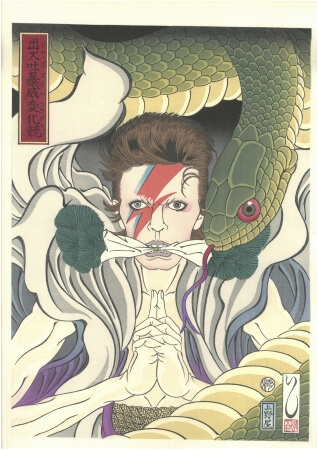 Title: David Bowie Hengekyou “Kidomaru”
Title: David Bowie Hengekyou “Kidomaru”
From Brian Duffy’s “Aladdin Sane”
Artist: Masumi Ishikawa / Engraver: Sato Nami / Printer: 中山誠人 Size: 480mm×340mm (Portrait) *200 copies available
Price: ¥108,000 (Tax Included)
Kidomaru is a familiar face in the world of ukiyo-e, a sorcerer who appears in myths and legends of the Kamakura Period. This art piece features the giant snake itself and an intricately drawn Bowie.These captivating and bewitching ukiyo-e pieces of David Bowie are sure to entice fans around the world.■InformationUKIYO-E PROJECT presents David Bowie Ukiyo-e Exhibition Featuring the Works of Terry O’Neill and Brian DuffyLocation: BookmarAddress: 4-26-14 Jingumae, Shibuya, TokyoRunning: June 23, 2018 – July 1, 2018Time: 12:00-19:00UKIYO-E PROJECT: https://ukiyoe.today -
Edo Cat Cafe Combines the Worlds of Ukiyo-e and Cats
An Edo-style cat café will bring to life the world of ukiyo-e with real cats you can play with. The Edo Cat Cafe will run from June 15 to August 31 this year at the event space outside the West Entrance at JR Ryogoku Station.
The concept behind this event is: “A rumour between the residents of an Edo ‘nagaya’ and cats. Travellers from across the country catch sound of the rumour and come to get a glimpse.”
The nagaya was a type of living quarters in the Edo period made like a row of houses. The cat café building is made to look like one of these. Ukiyo-e paintings and models will decorate inside and bring to life the street and atmosphere of the Edo period. There will also be entrances, streets and staircases for cats to use. You’ll be able to enjoy a unique experience and take photos while playing with cats in what will really feel just like the world of Edo.
There will be several zones inside building, including the cat tea room, cat ‘red light district,’ cat bath, cat nagaya, and cat plaza. Each area will be furnished with ukiyo-e that fit the scene, bringing to life the world of Edo. As well as being able to take photos with the cats anywhere inside the café, you’ll also have the chance to learn about the deep relationship between the people of Edo and cats through the commentaries of each ukiyo-e piece. There’ll even be a merchandise corner to purchase original goods related to cats.
But it doesn’t stop there. There will also be a chance to enjoy Edo’s food culture at -Ryogoku- Edo NOREN, join in a campaign being held in collaboration with Sumida Hokusai Museum, and more. Part of the proceedings made at the café will go towards tackling the problem of homeless cats. Cat-loving artists are also set to cooperate in the event and they will produce original ema plaques.
If you’re also a cat-lover then don’t miss out on this unique Edo and cat café mashup!
■Information
Edo Cat Cafe
Location; Ryogoku Station West Exit Event Space (Sumida-ku, Tokyo)
Date: June 15, 2018―August 31, 2018
Time: 11:00-20:00 (Last Entries 19:00)
Access: 1-minute on foot from West Exit of Ryogoku Station via the JR Sobu Line
*Event subject to date changes in case of natural disasters or other unpredictable causes.
*Please refrain from picking up the cats, speaking in a loud voice, chasing cats and other such behaviour.
Entry Price (60 Minutes / Tax Included)
*Same-day tickets. Prices in brackets denote tickets bought in advance.
Adults: ¥1,500 (¥1,000)
High School / Junior High School Students: ¥1,200 (¥800)
Extension: ¥500 per 20 minutes
Advance Tickets Sales Window: May 10, 2018―June 14, 2018
*It is advised you do not enter the café if you are allergic to cats.
*Those at elementary school age and below are not permitted entry.
*Please do not use flash on your cameras.
*Please do not take food or drink into the café.
*Please do not take your pets in with you.
Lawson Tickets (Sold at all Lawson stores and Mini Stop Loppi in Japan)
http://l-tike.com/edonekochaya
Official Event Website
-
Let’s learn about the history of Japan at renewed “EDO-TOKYO MUSEUM”
12.April.2018 | SPOT
After closing for 6 months, EDO-TOKYO MUSEUM was reopened on the 1st of April and about 22,000 people visited the museum between the 1st to 7th of April.
They held talk sessions and live performances between the 1st of April (Sun.) to the 7th (Sat.) which was designated as reopening commemoration week named, “EDO→TOKYO VISION Edo Tokyo no Rekishi (history) Bunka (culture) to Tsunagaru (connect with) Isshukan (one week).”
First, Shiriagari Kotobuki from Nakamuraza appeared on the stage and along with the performance of Kanya Tsuruzawa, a Gidayu Shamisen player, he performed live drawing on a 30m long Japanese paper using sumi (Japanese ink.) The audience was glued to the performance. Lastly, he drew the illustration of Sky Tree and hung the work from “Nihonbashi,” one of the works exhibited in the museum.
The event started with the rakugo performance (Japanese traditional comic storytelling) of the female rakugo performer Kokintei Kikuchiyo. She performed one of popular story created during the Edo period named, “Tarachine.”
About 300 spectators attended the“Rekishi Special Acoustic Live.” The venue was filled with excitement right after Rekishi wearing a hakama appeared on the stage with the sound of a trumpet shell and drums.
EDO-TOKYO MUSEUM is planning to introduce the history and culture of the Edo Period and Tokyo to those who love history, to those who have never visited the museum and to tourists from foreign countries. They will hold many events to become a focal point of Tokyo’s culture.
Let’s visit the renewed EDO-TOKYO MUSEUM and learn about the history of Tokyo!
■Information
EDO-TOKYO MUSEUM
Address: 1st avenue, 4-1, Yokoduna, Sumidaku, Tokyo
Opening hours: weekdays 9:30 to 17:30 (Sat – 9:30 to 19:30) ※last entrance – 30 minutes before closing time
TEL:03-3626-9974
Website:https://www.edo-tokyo-museum.or.jp

